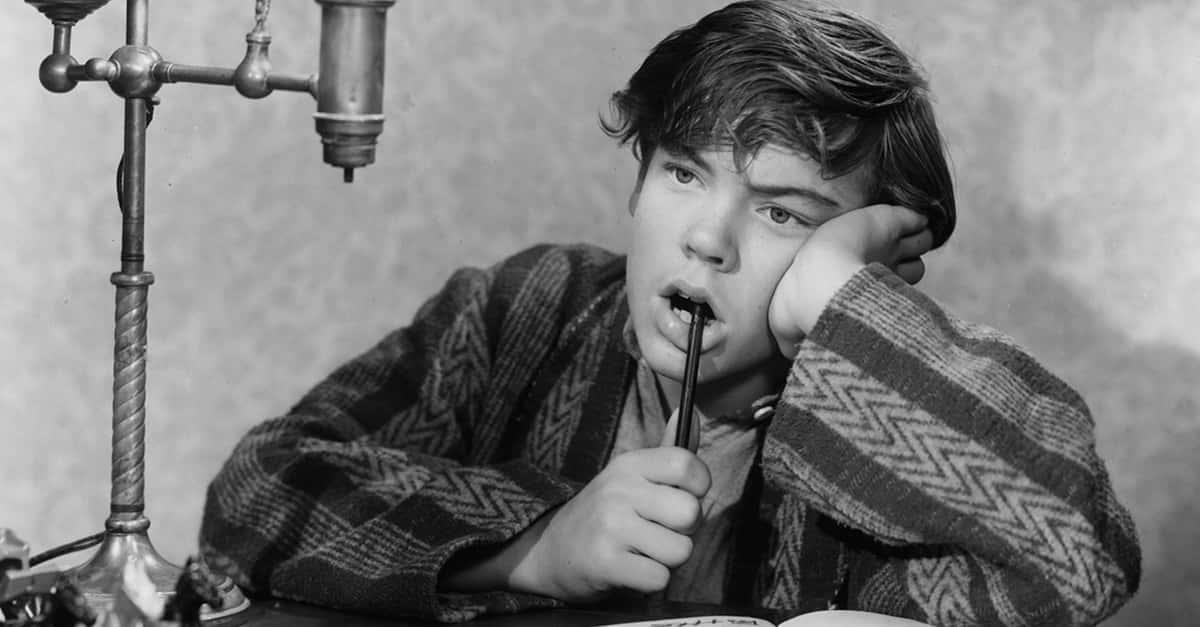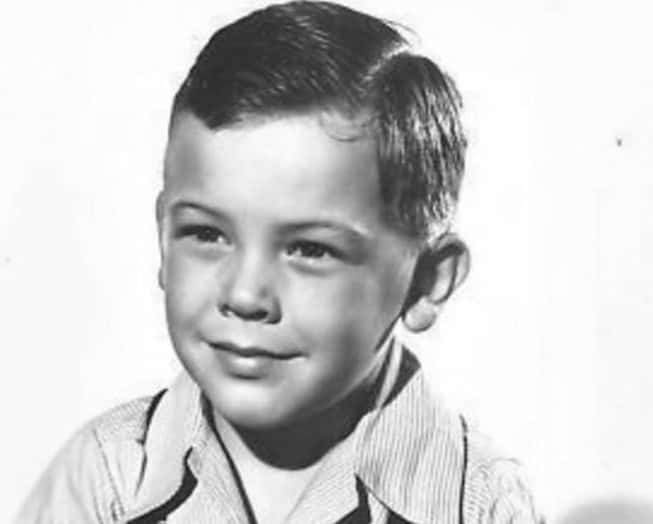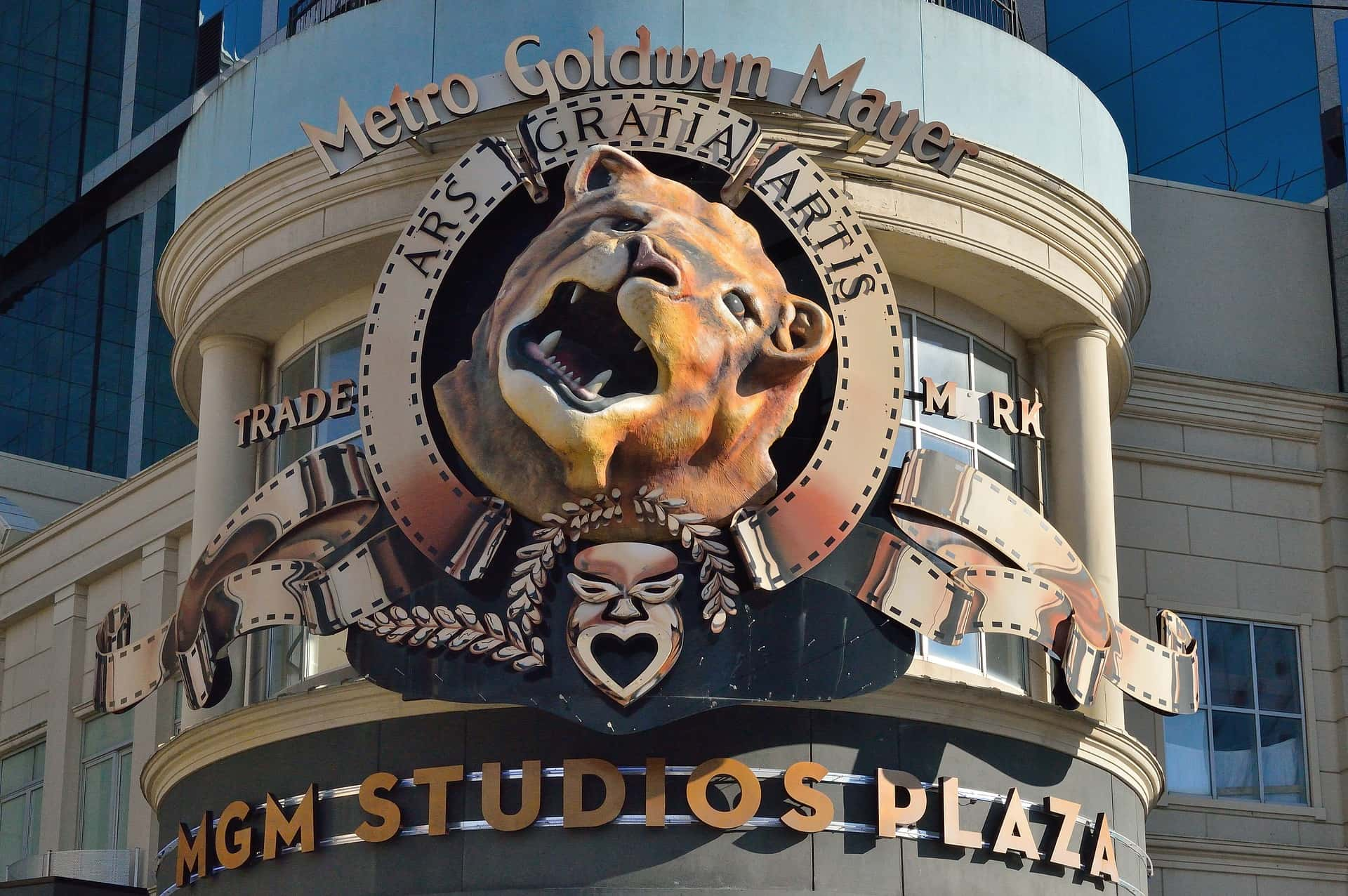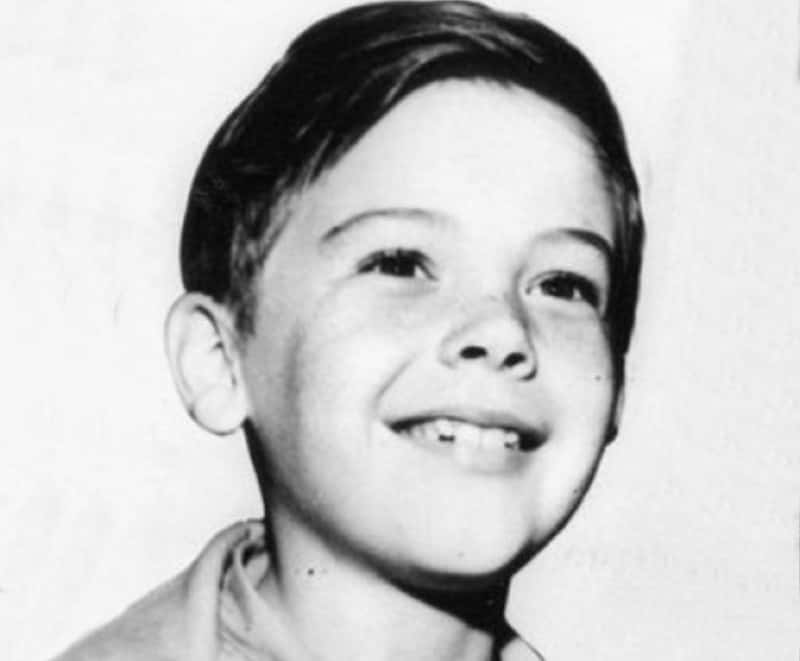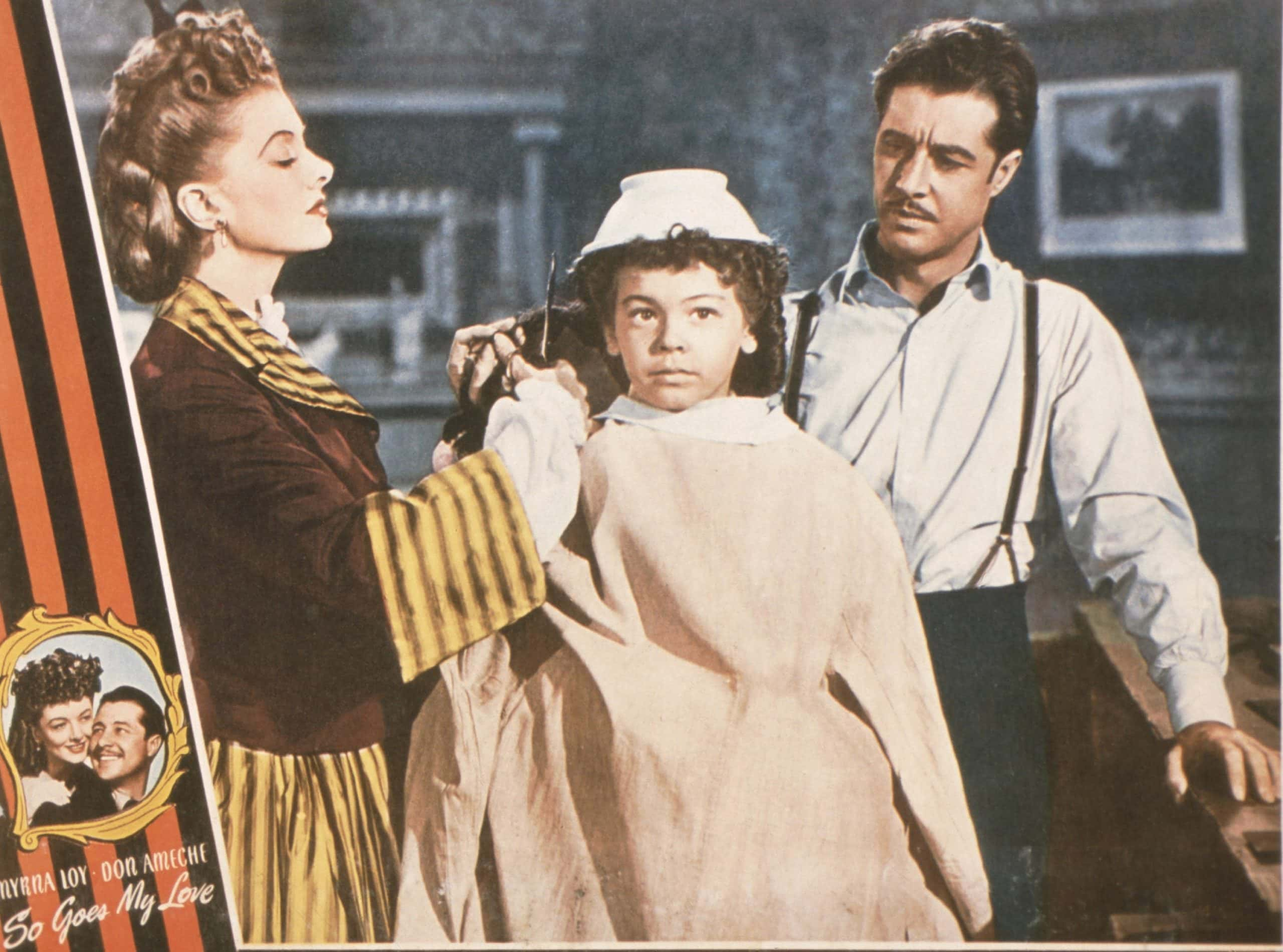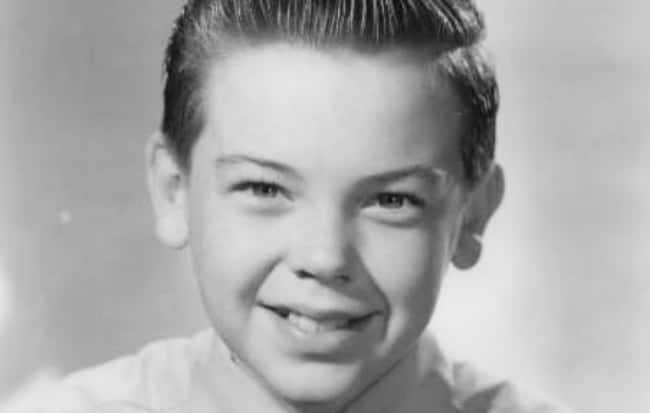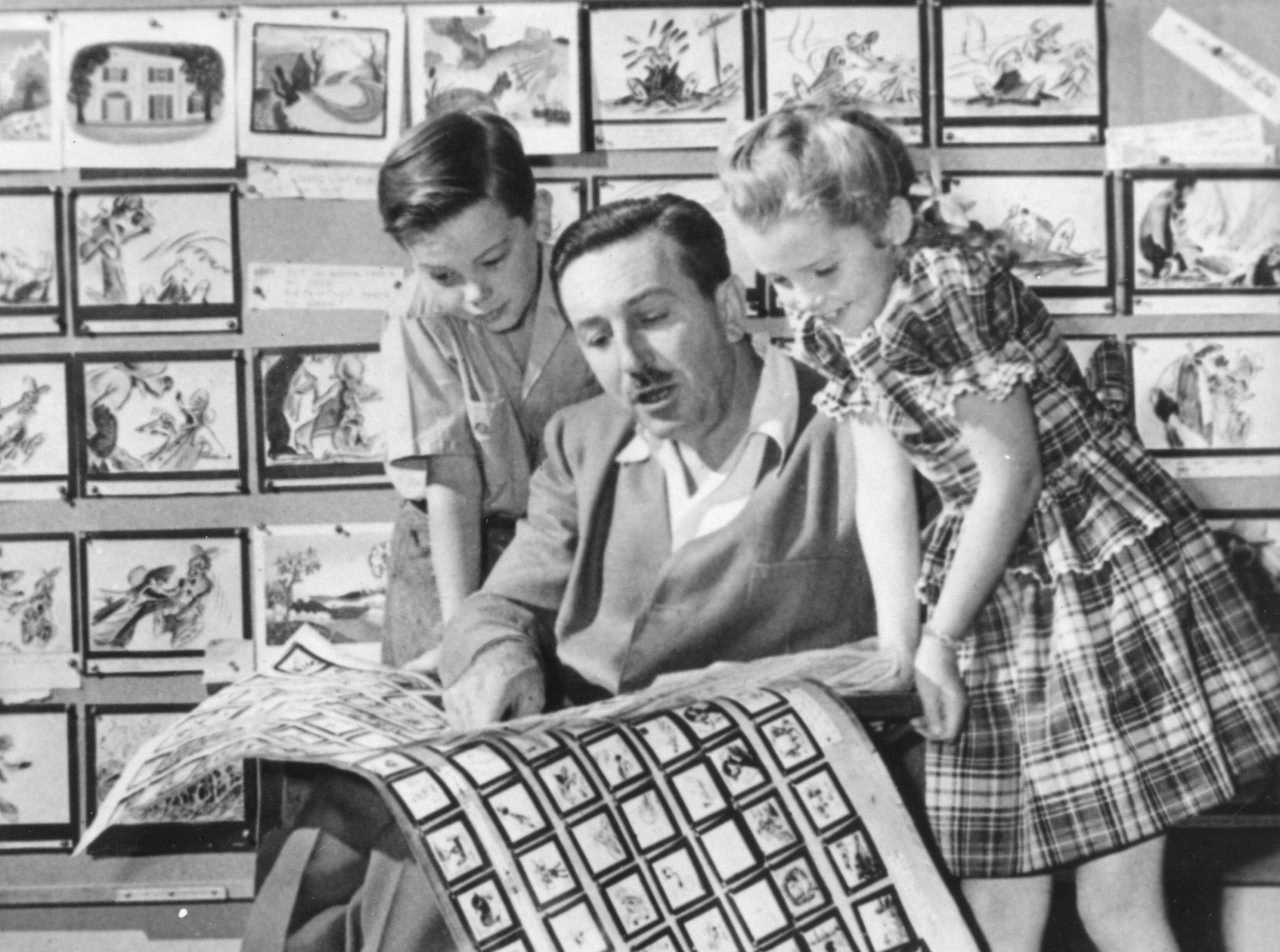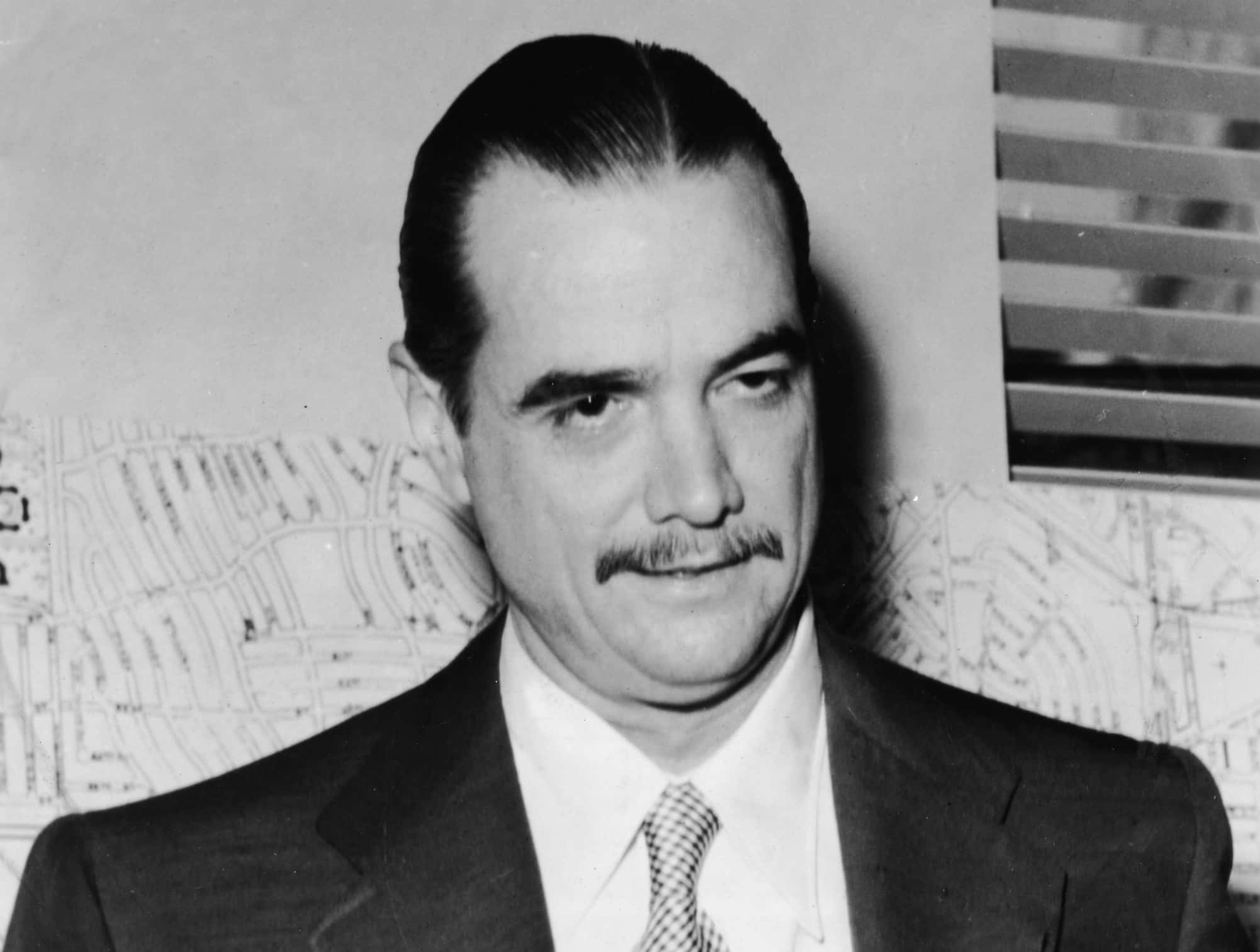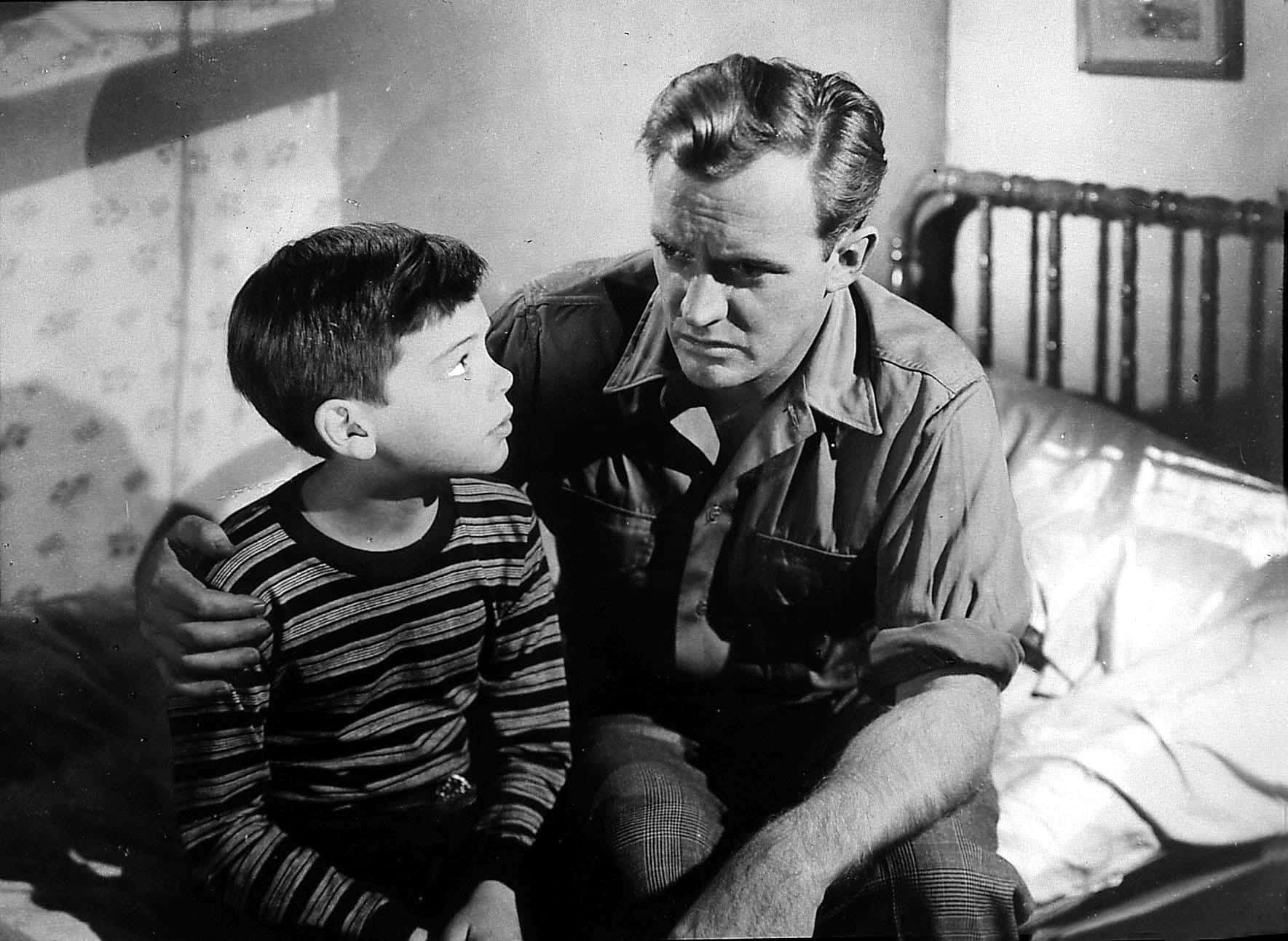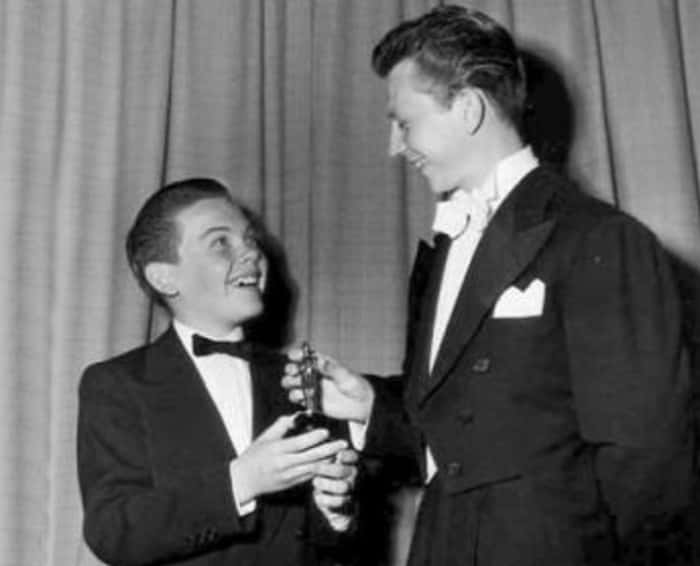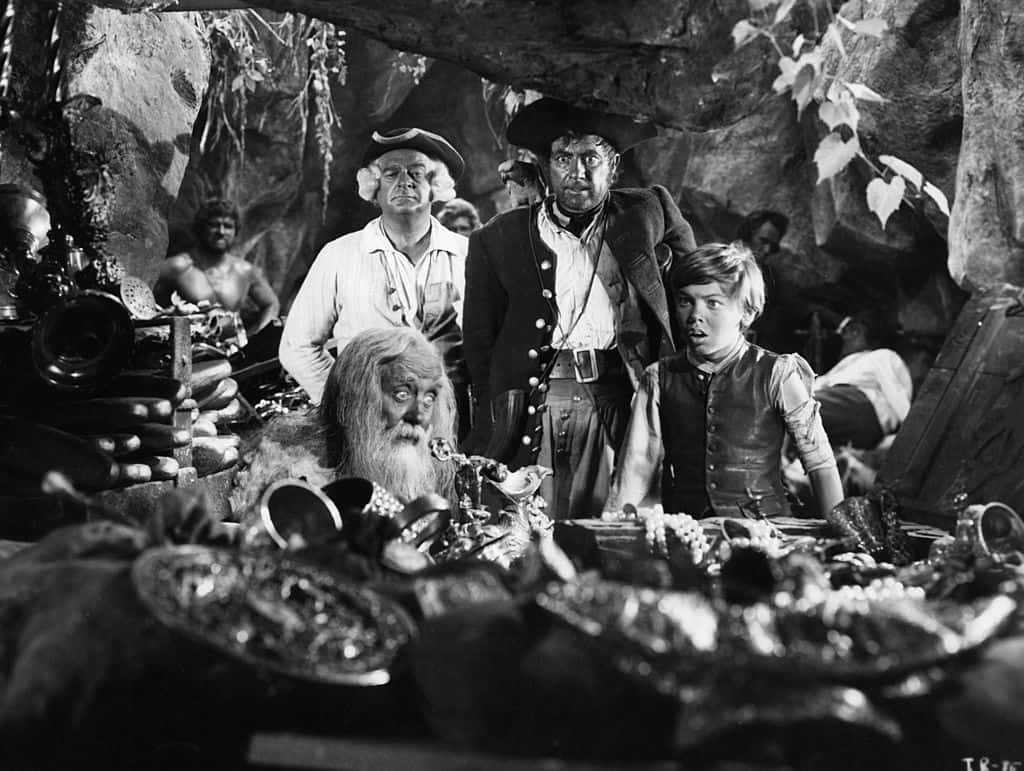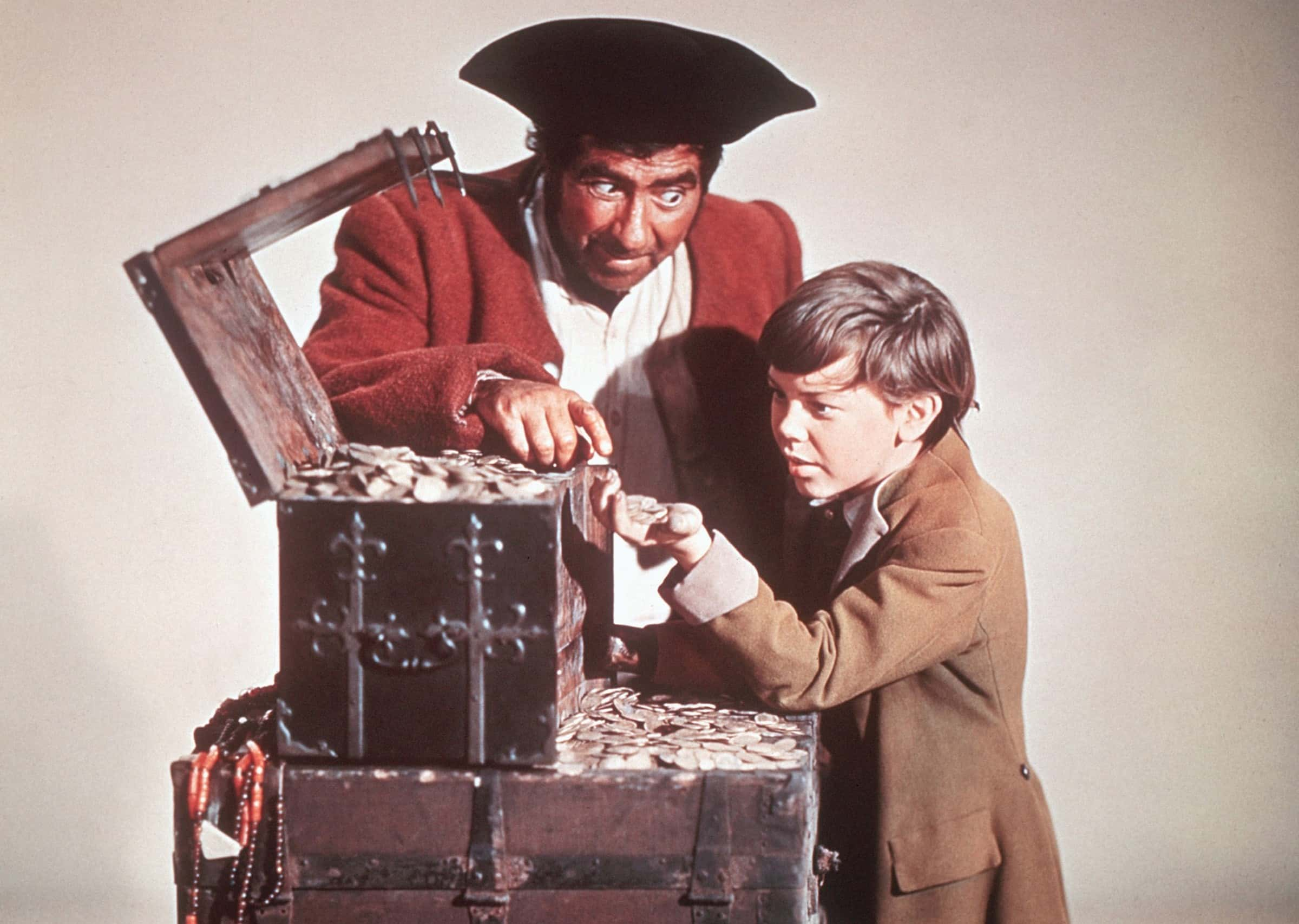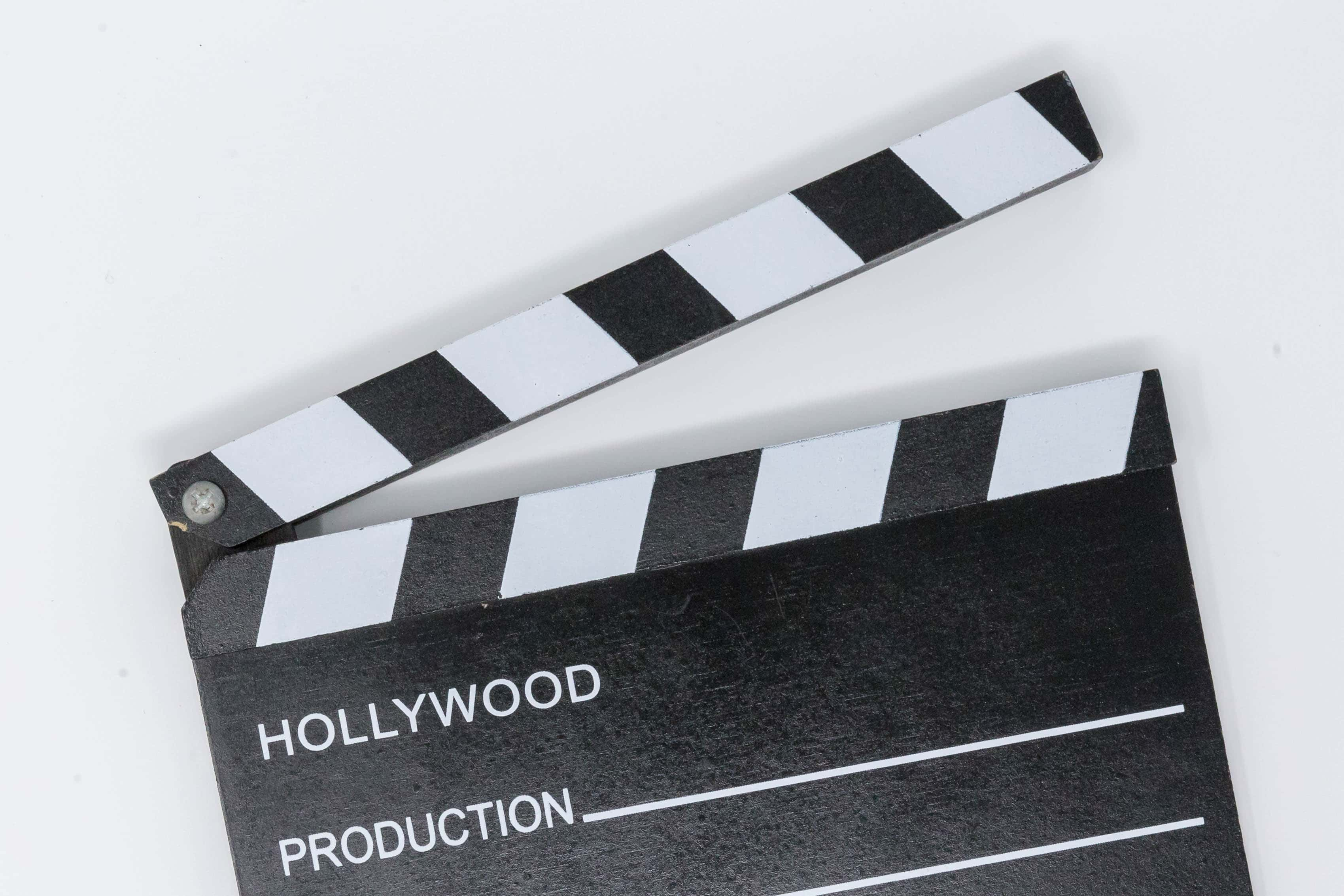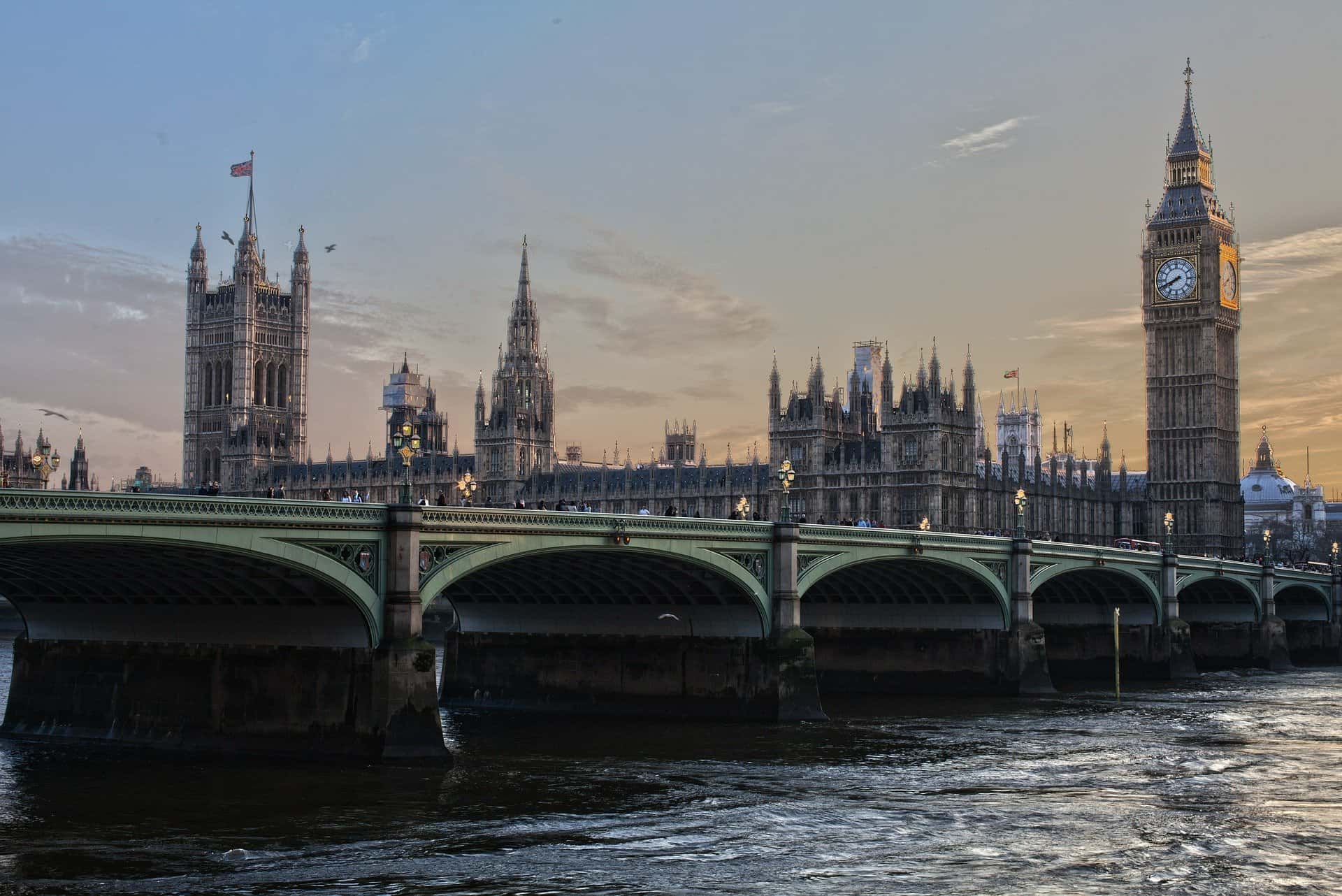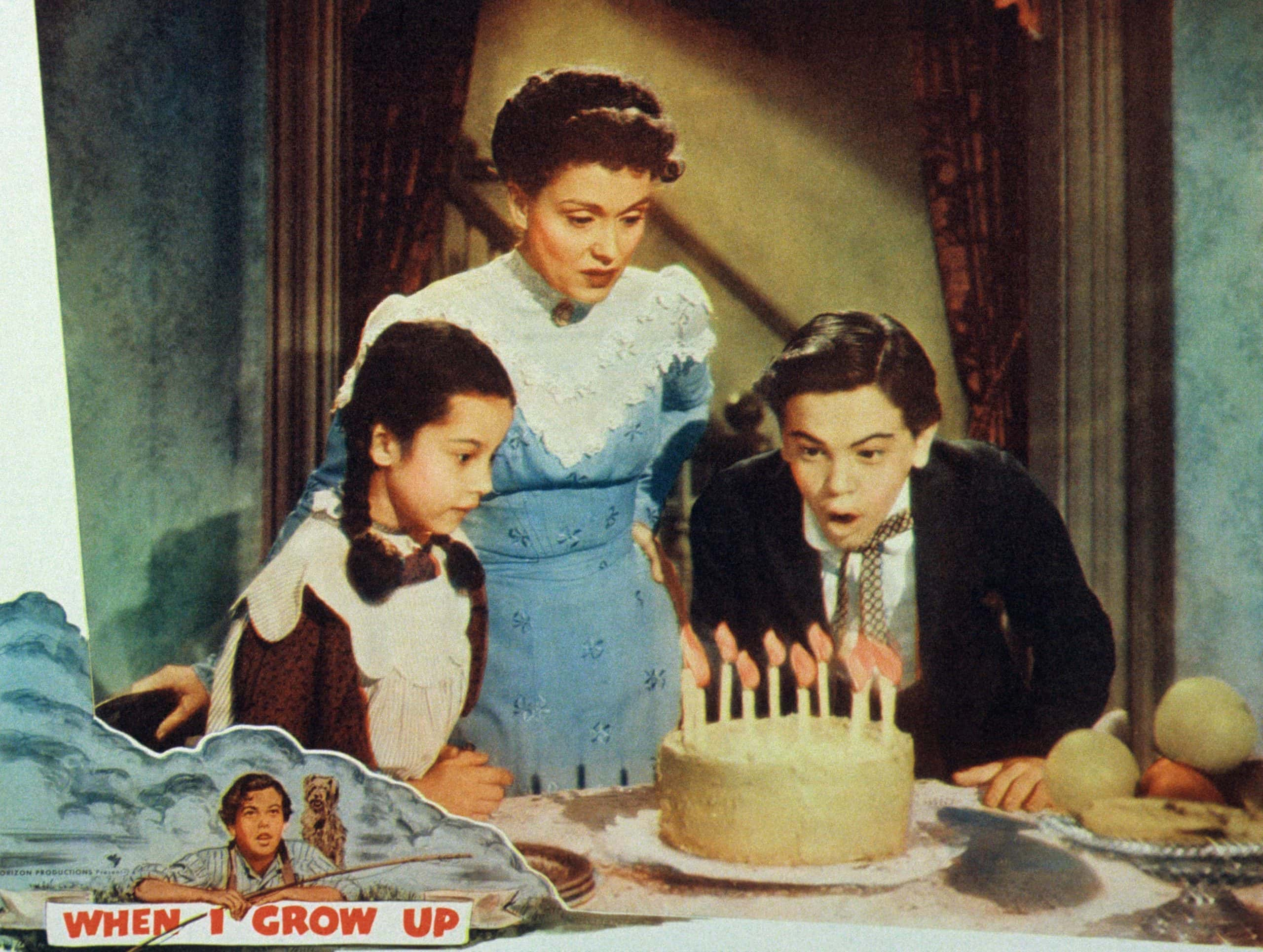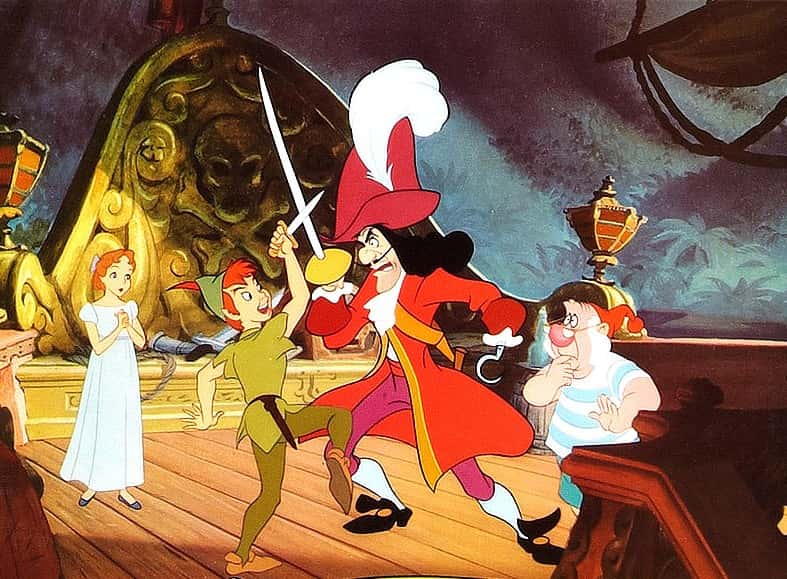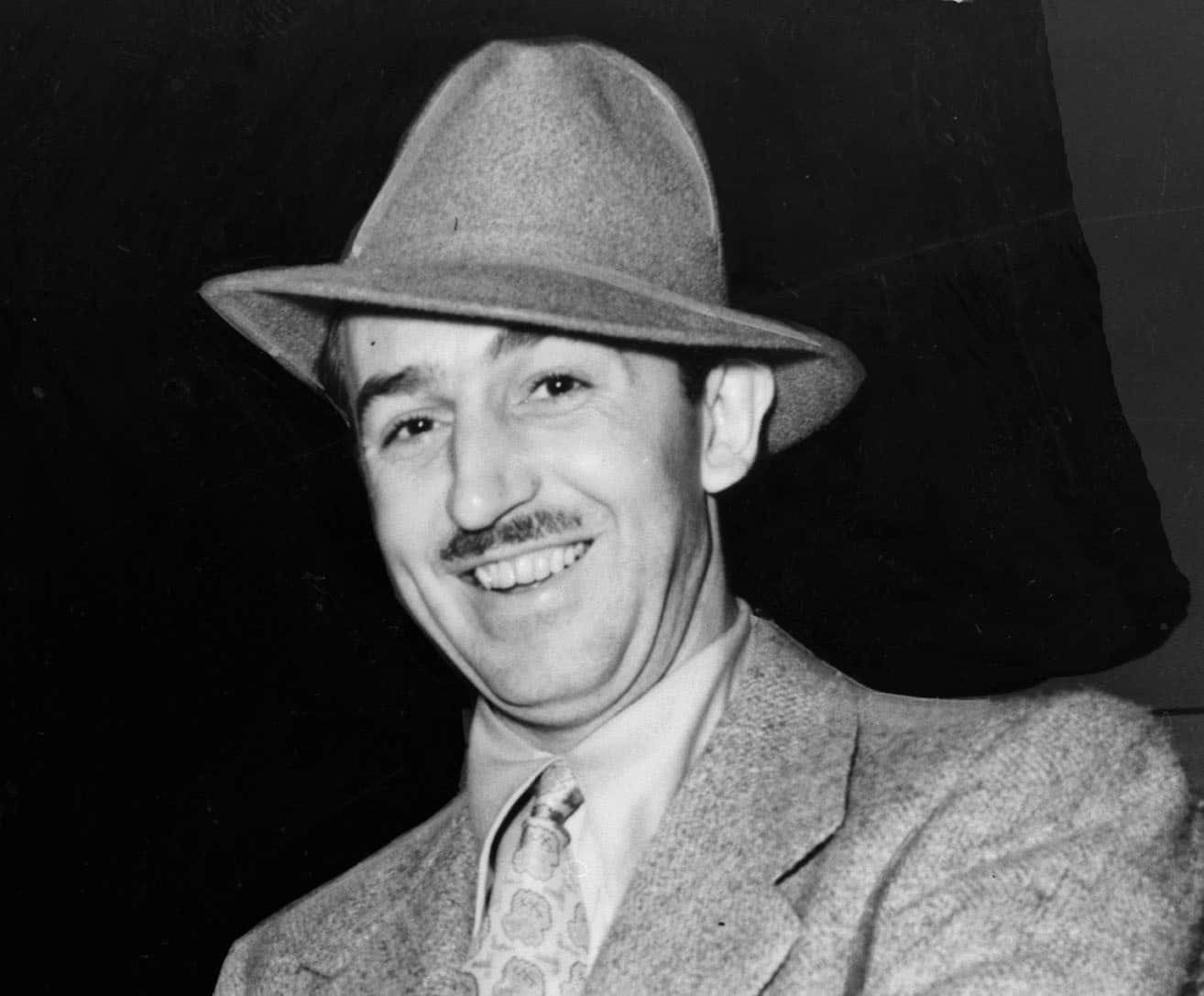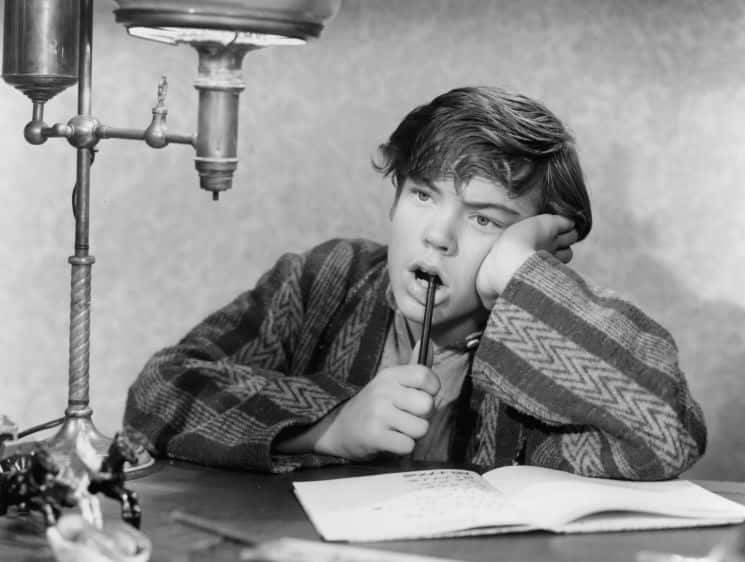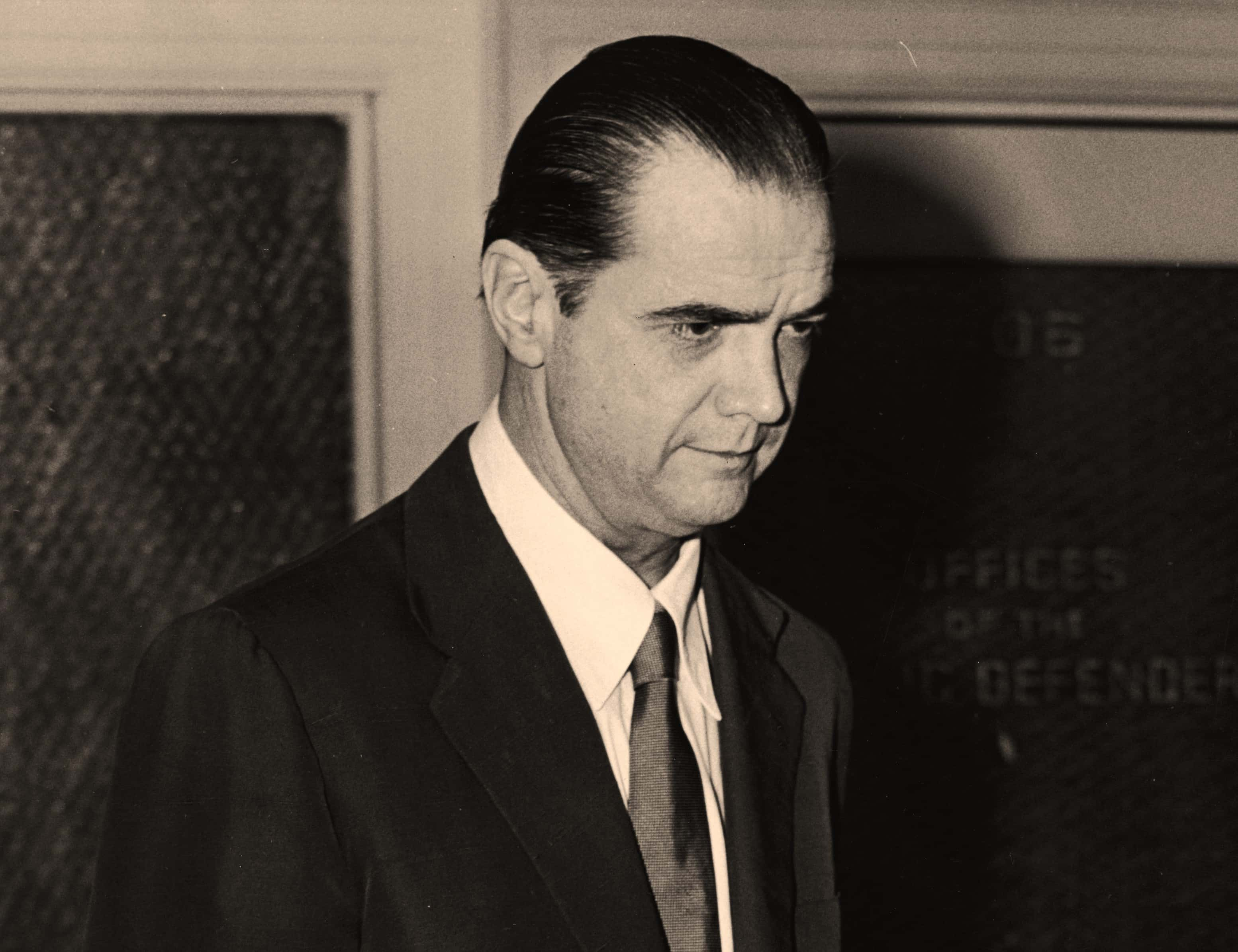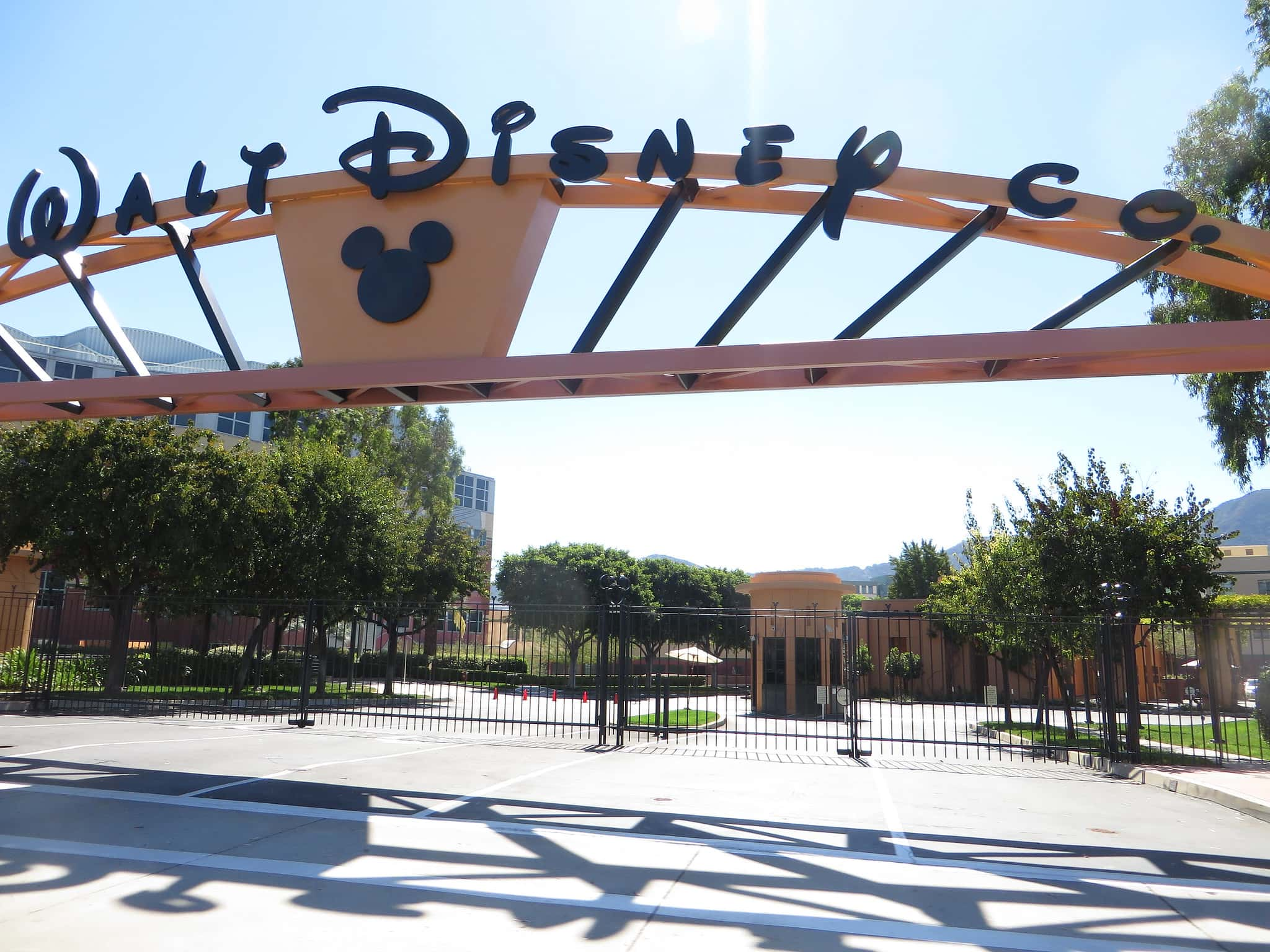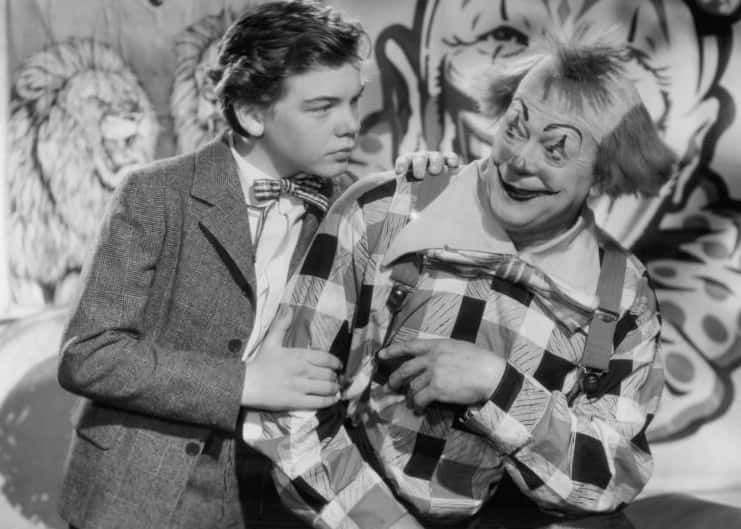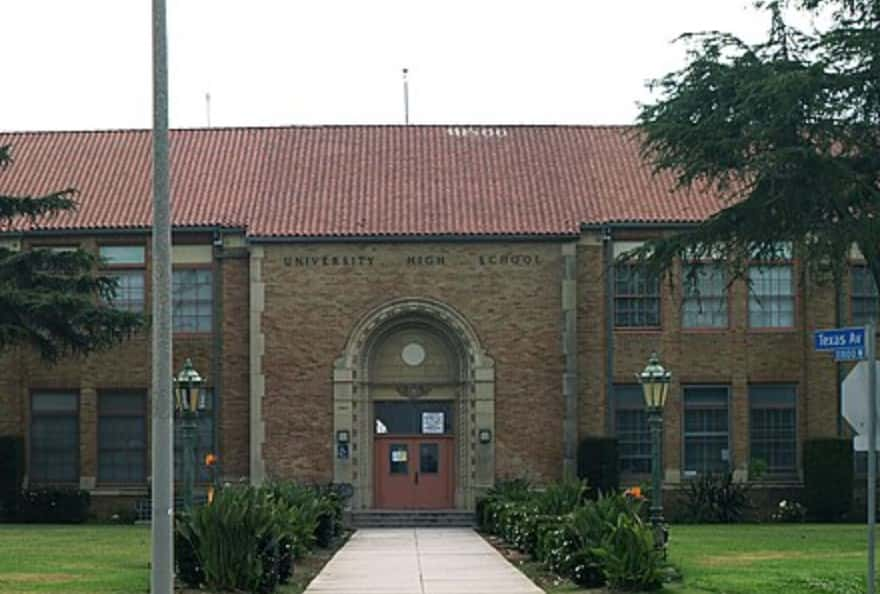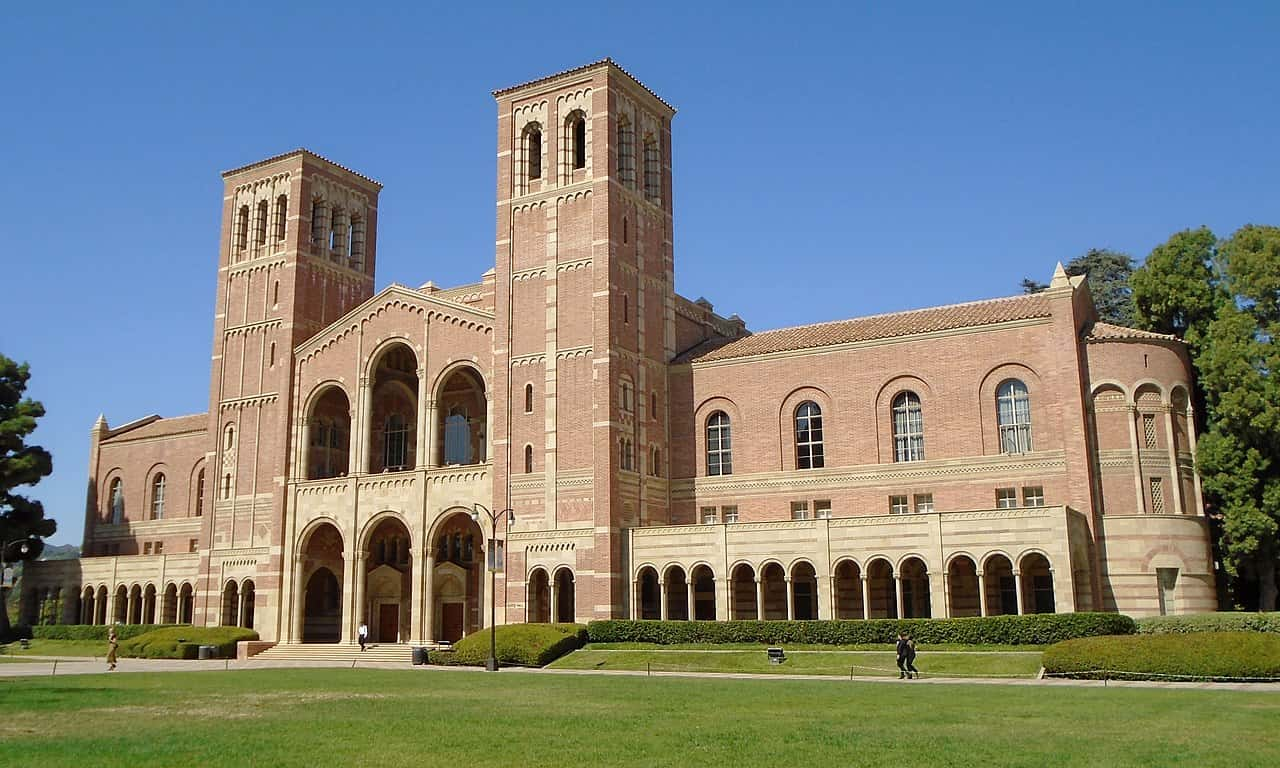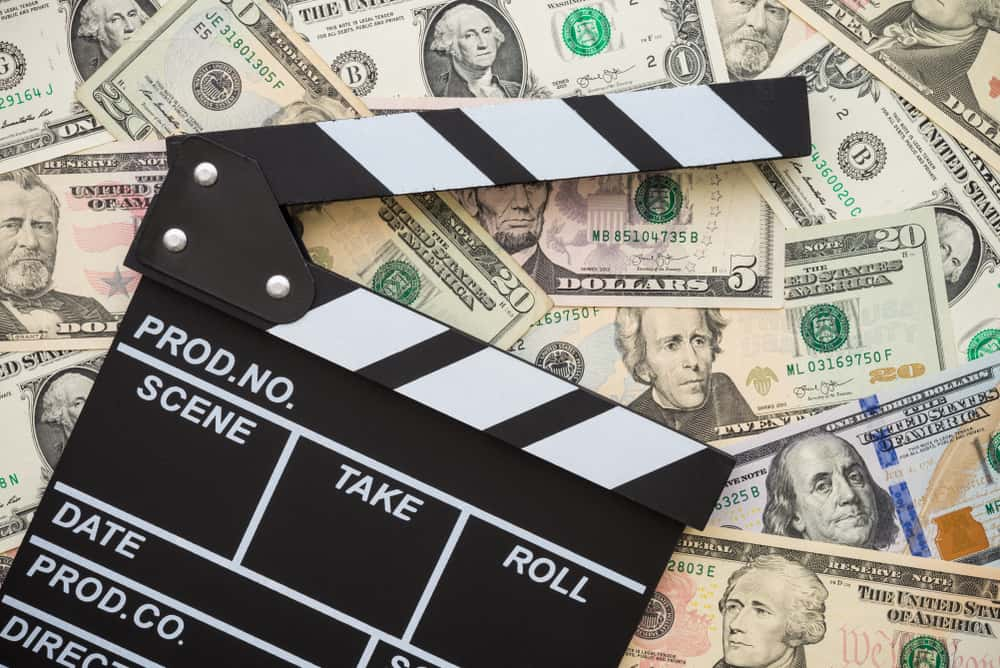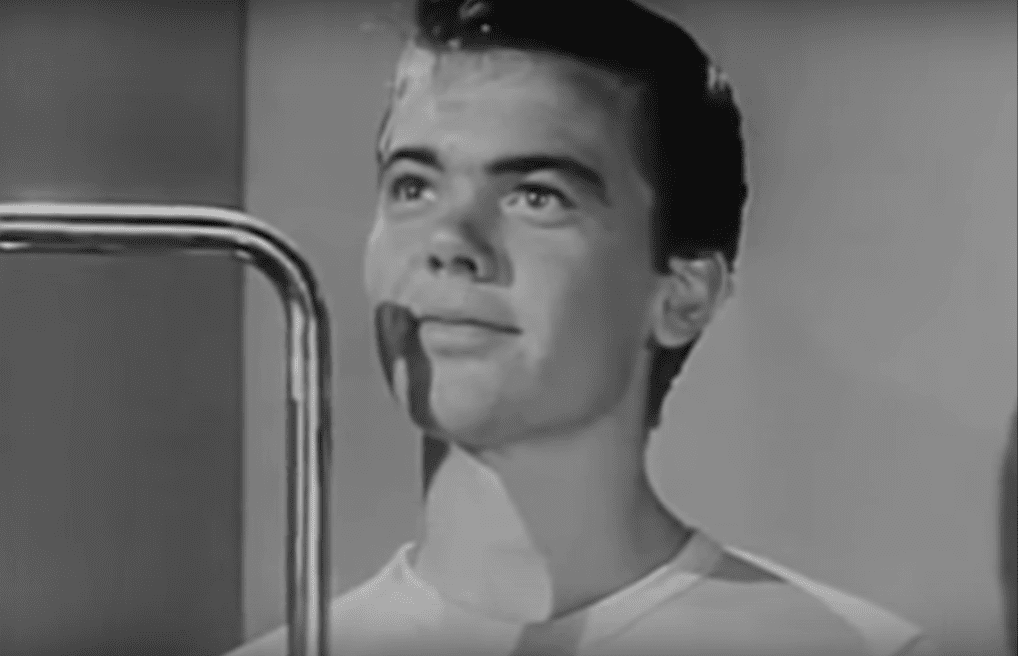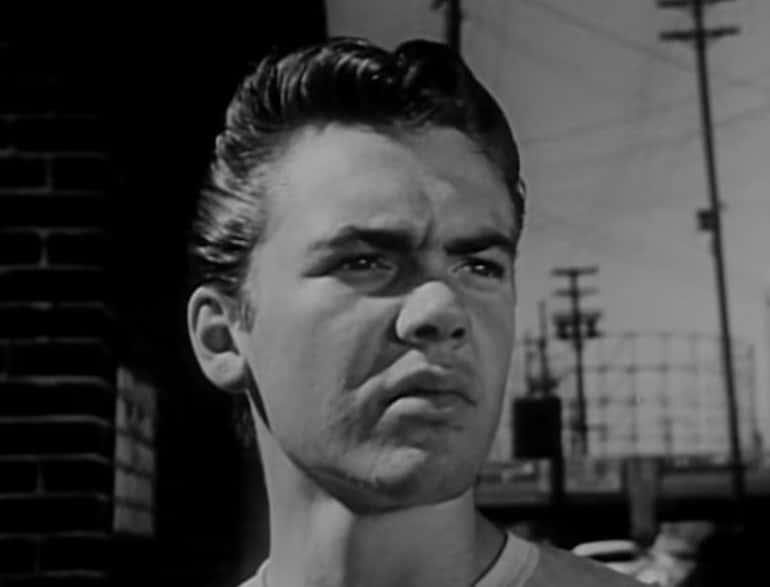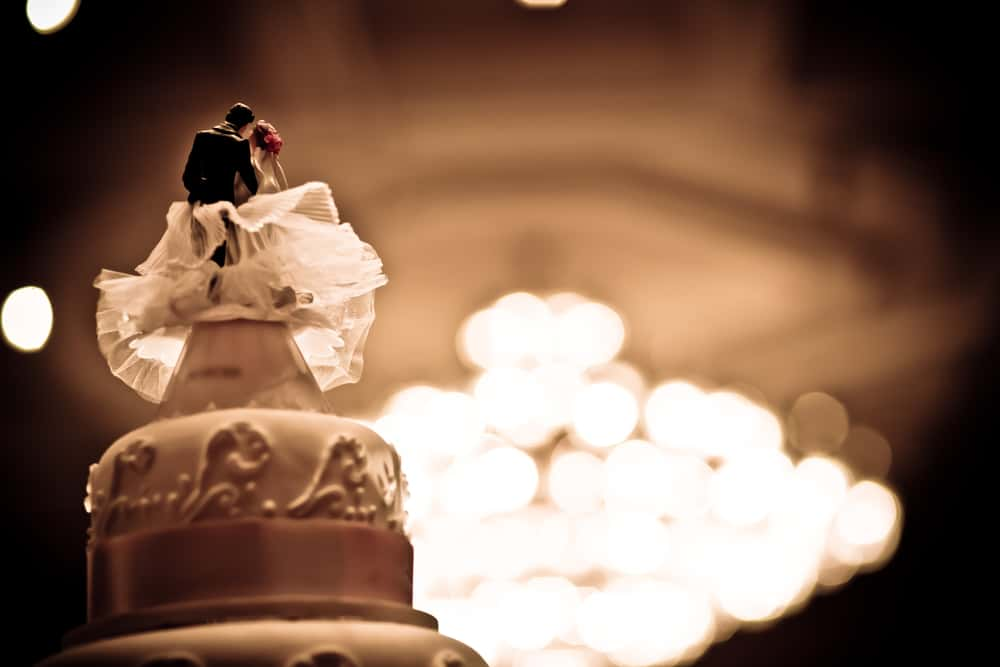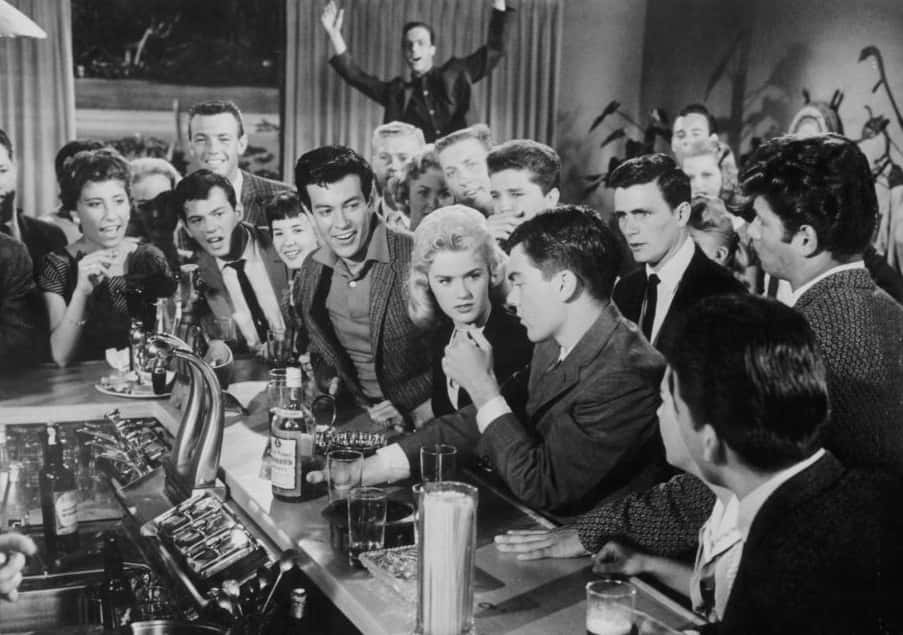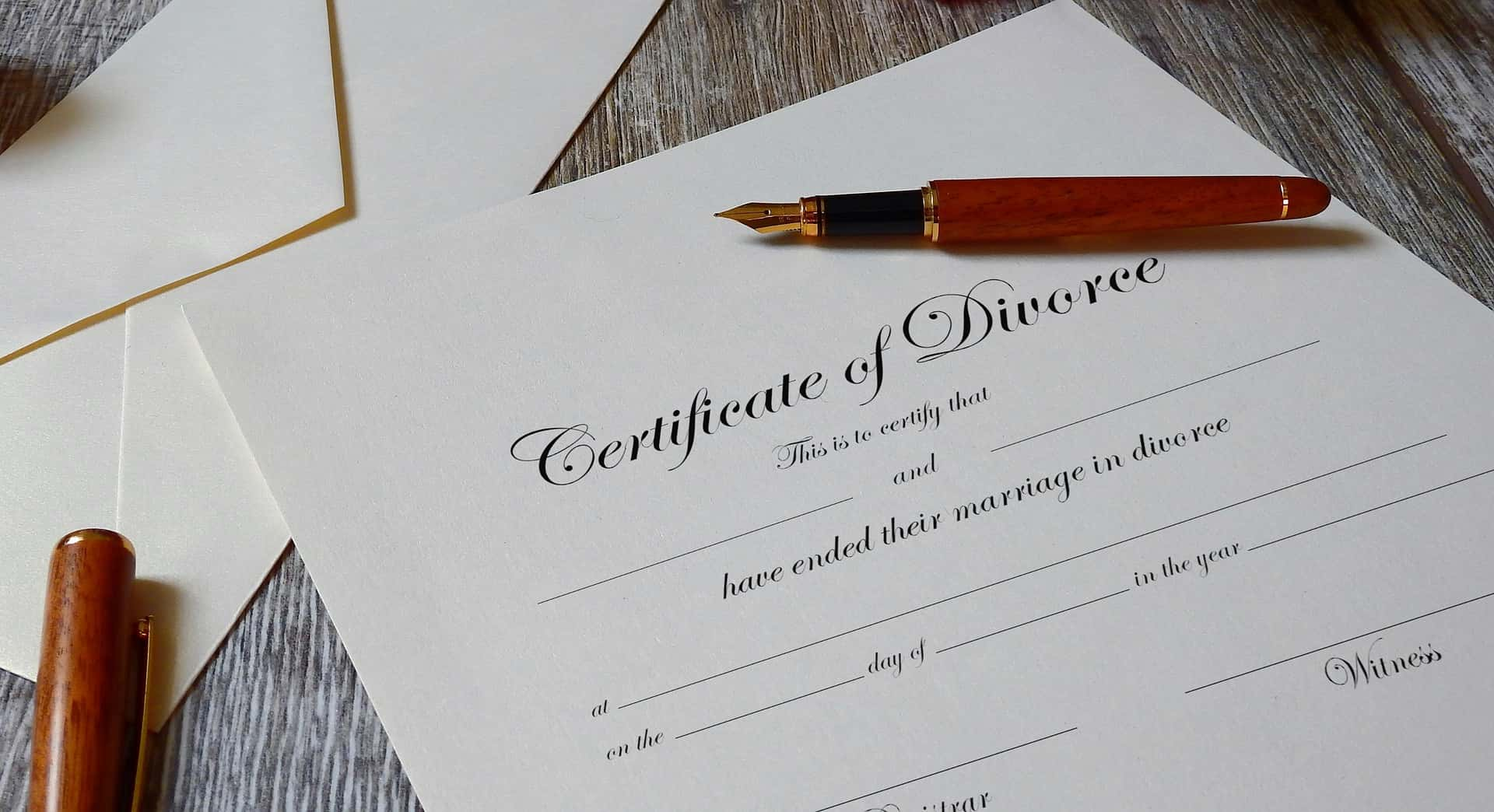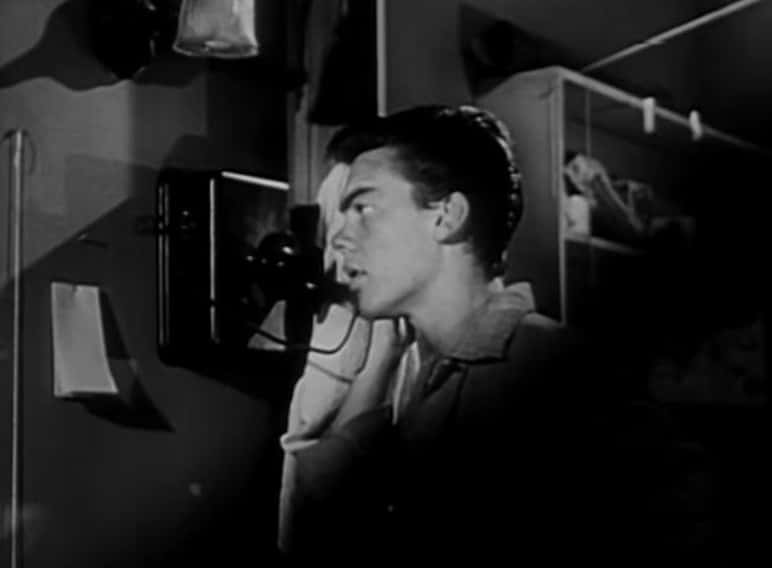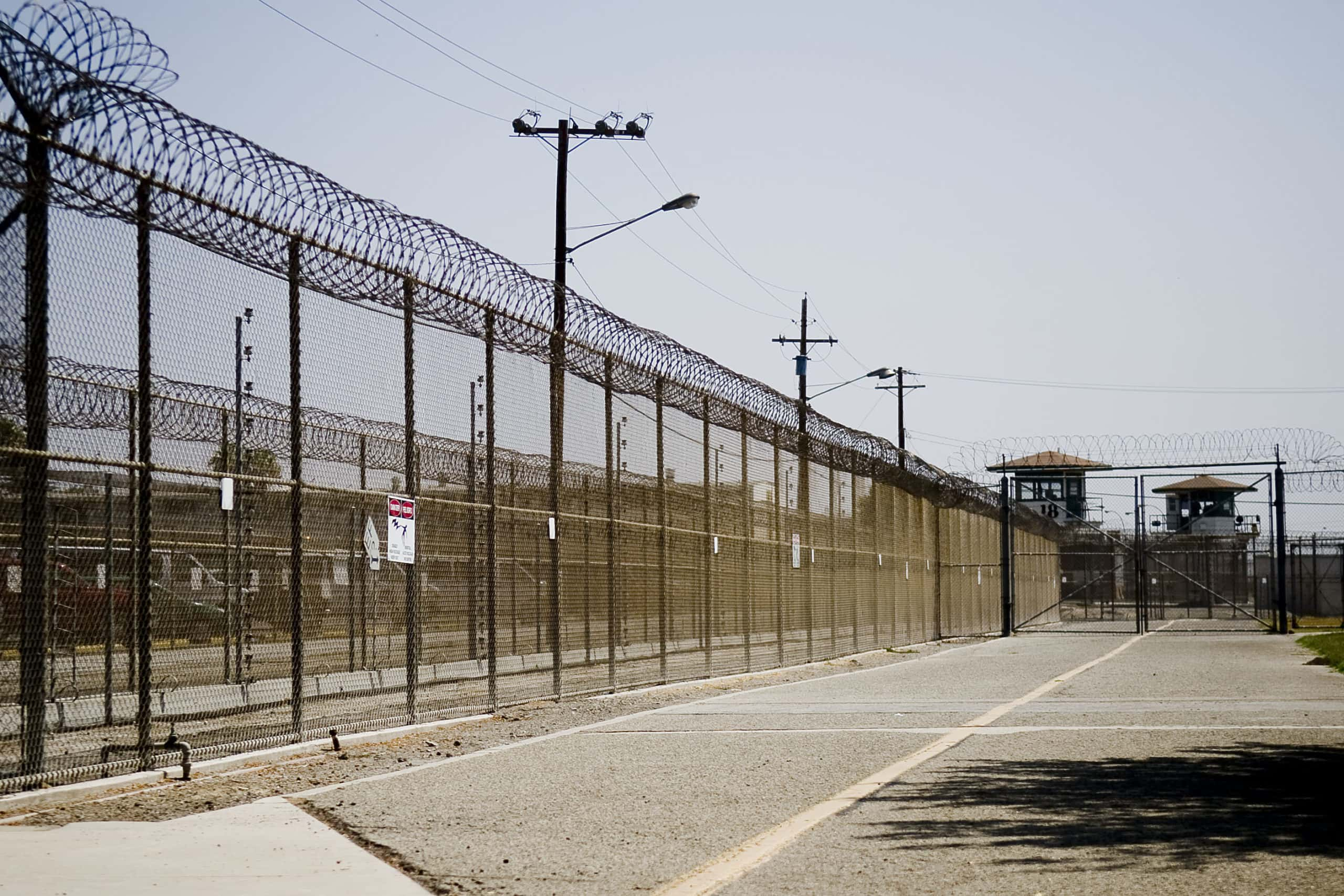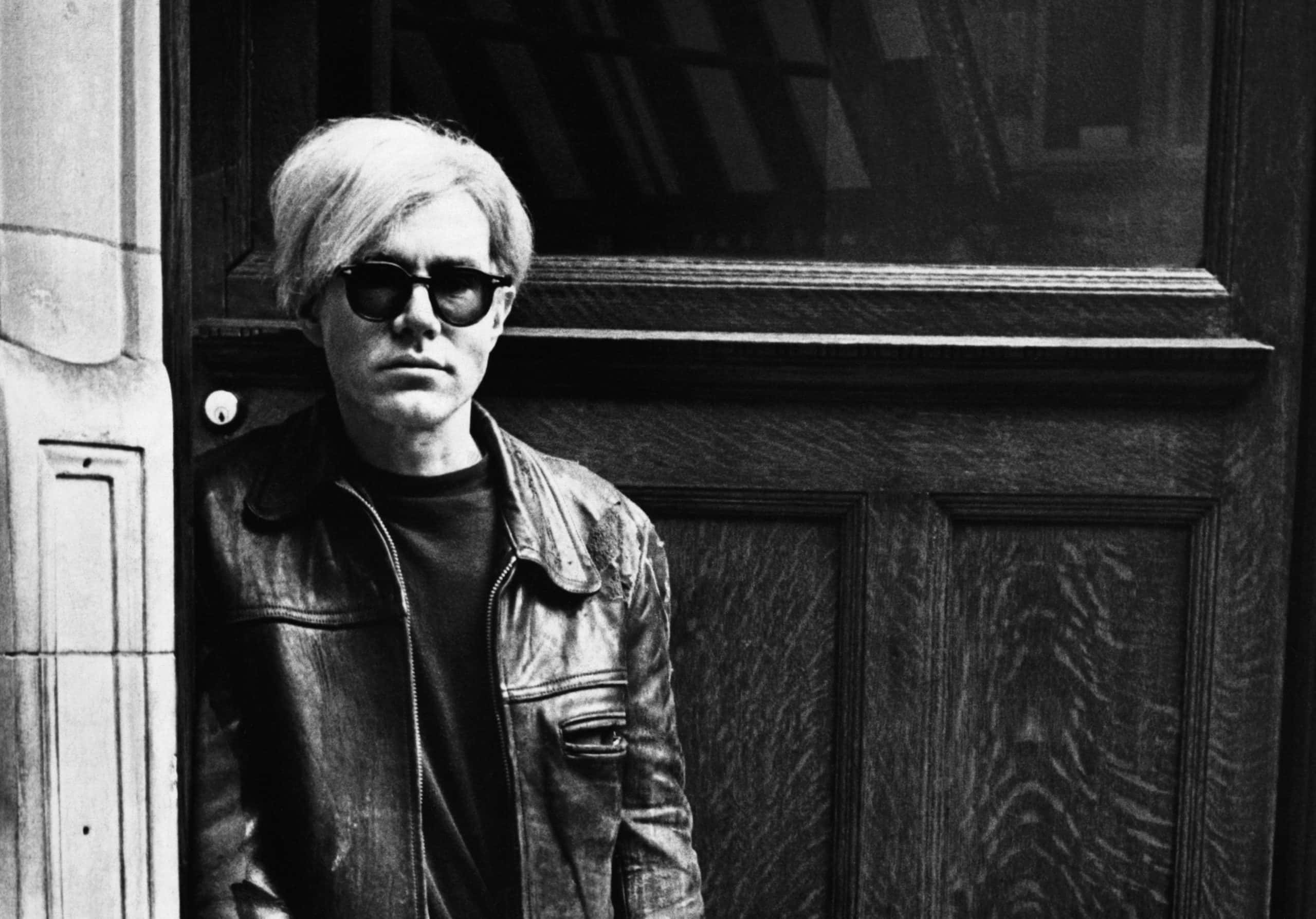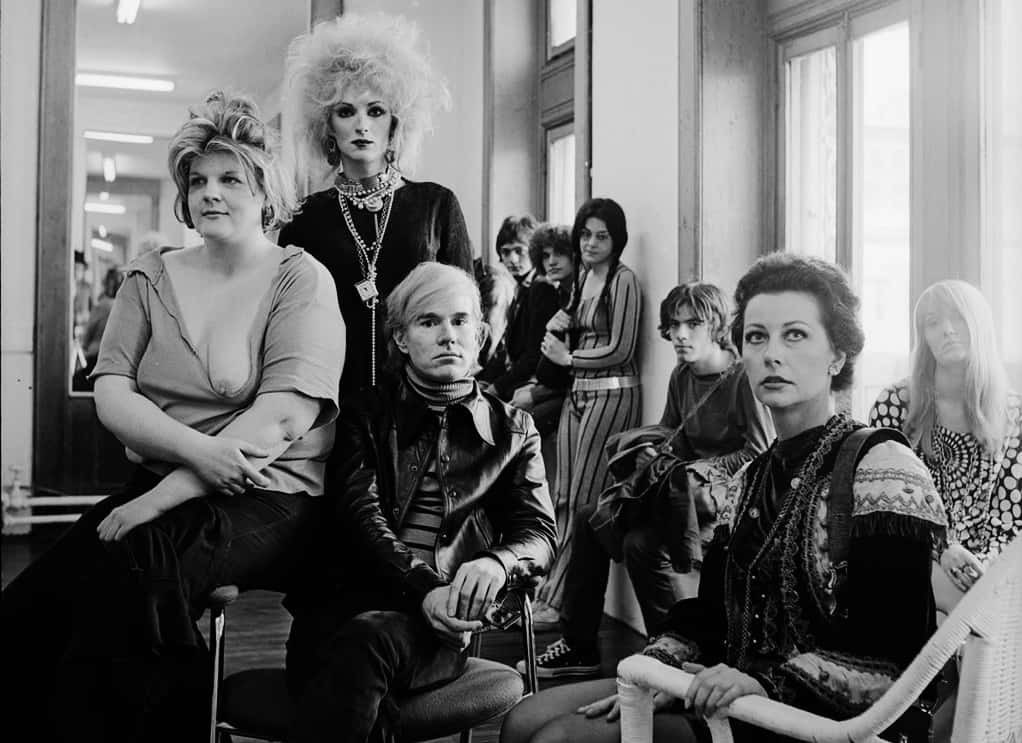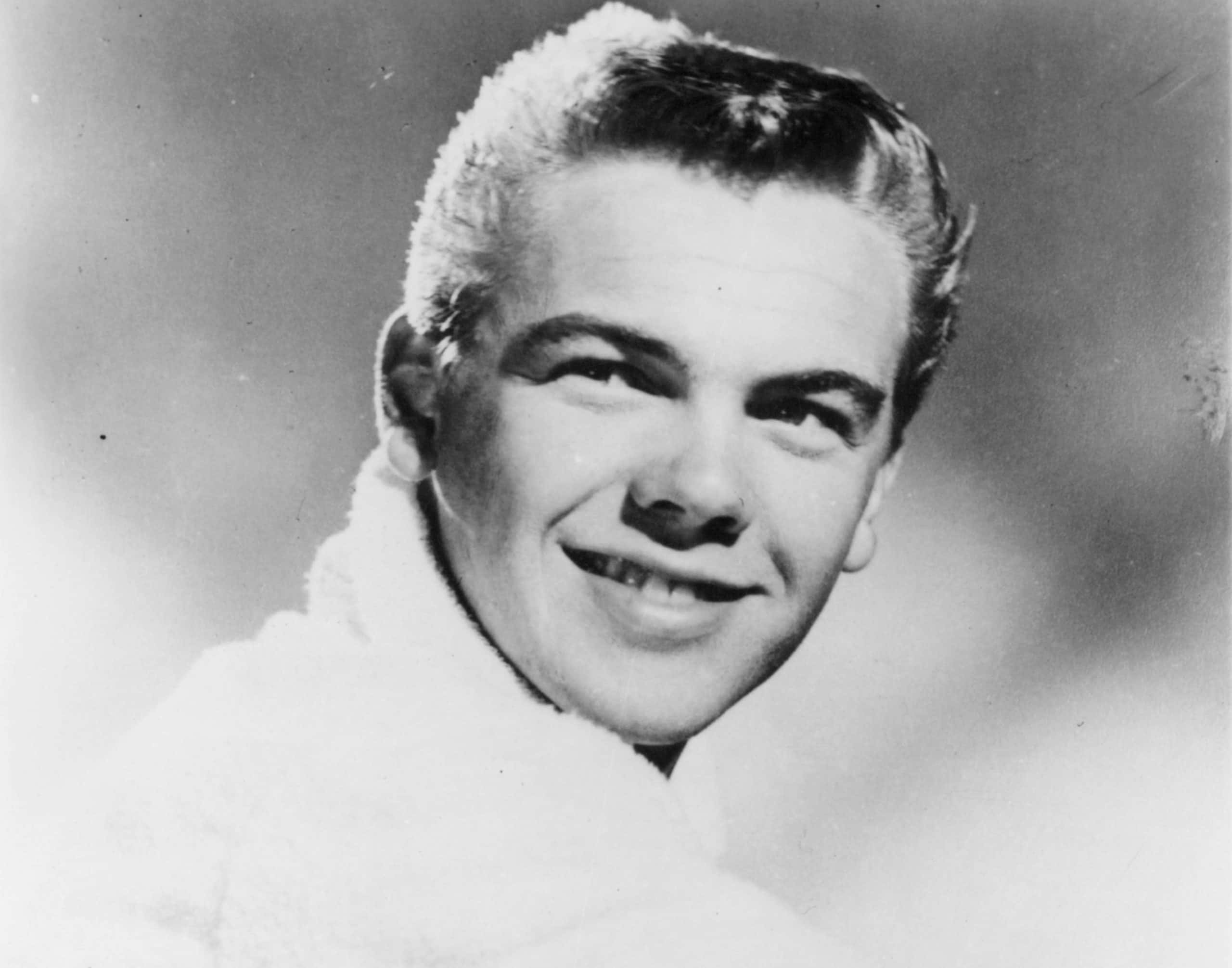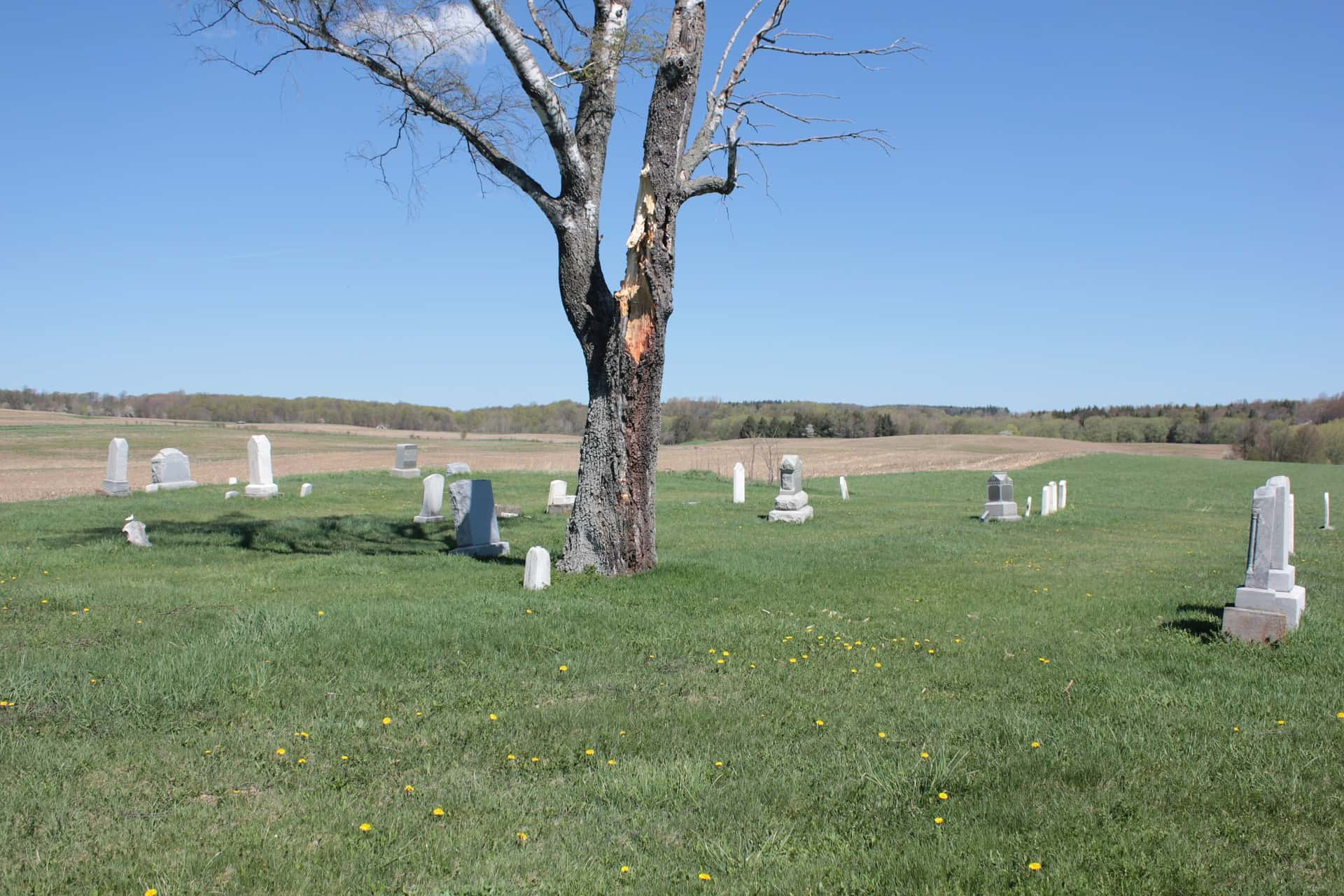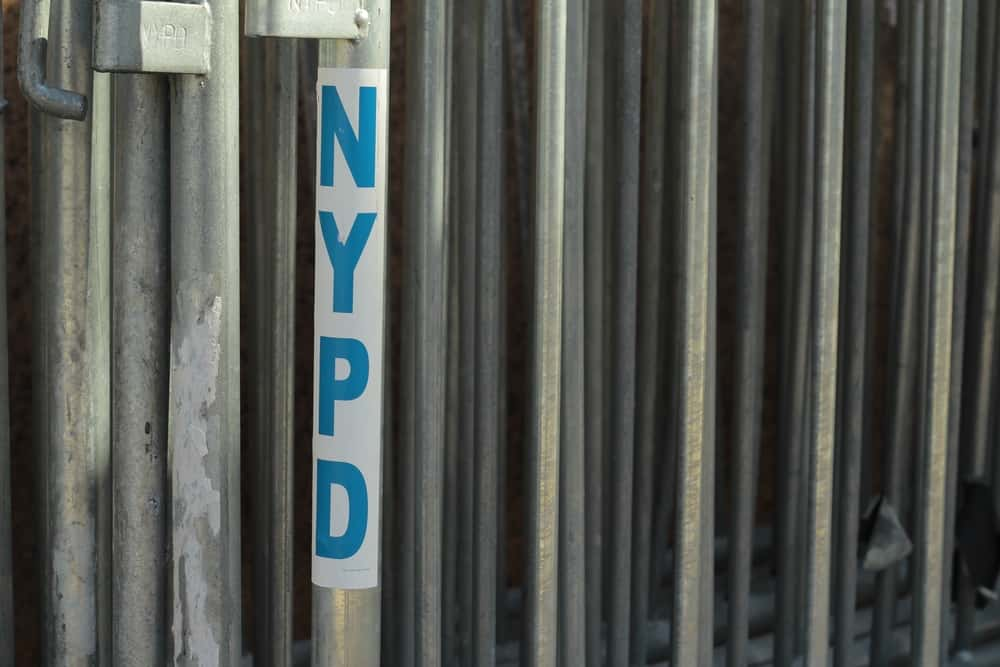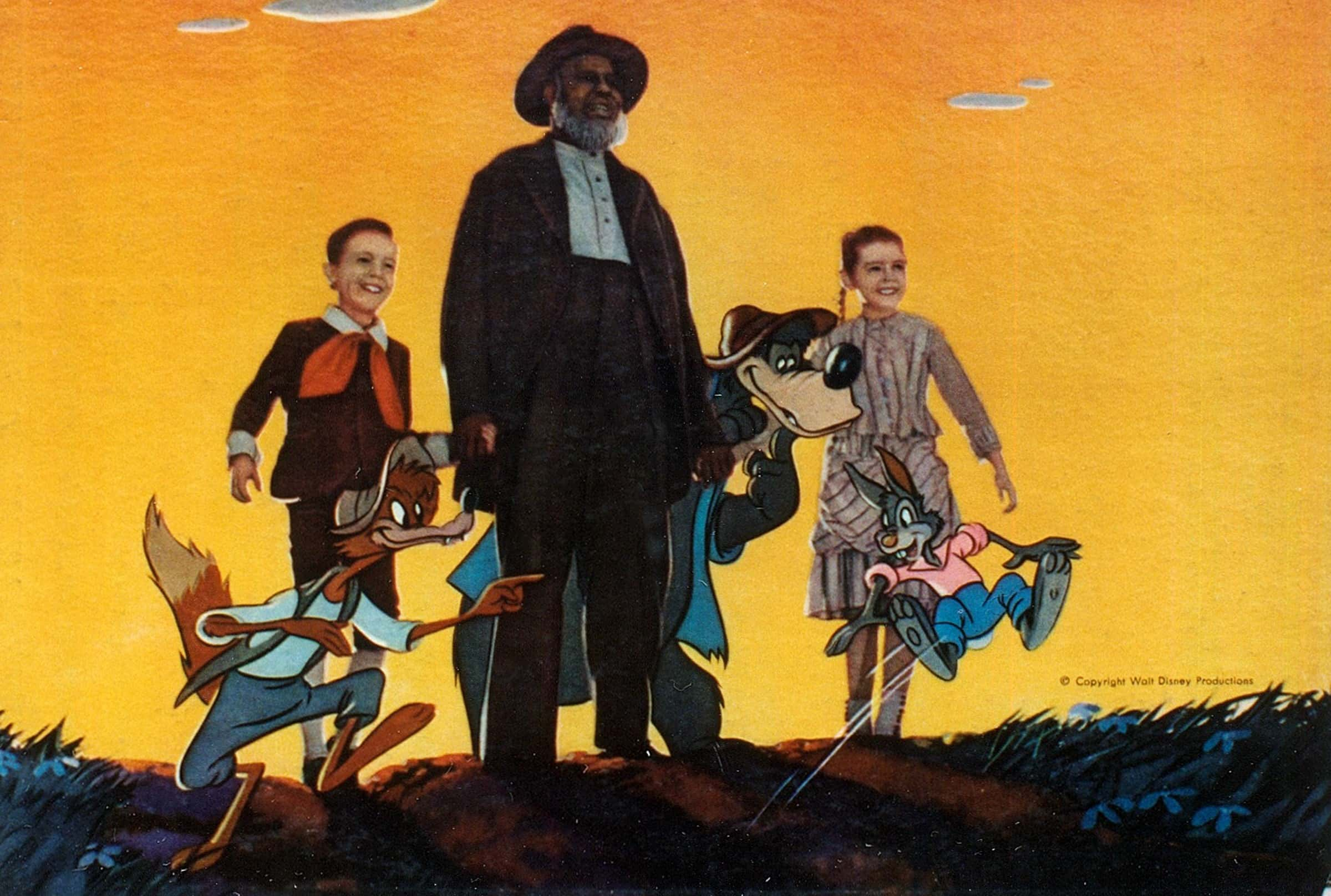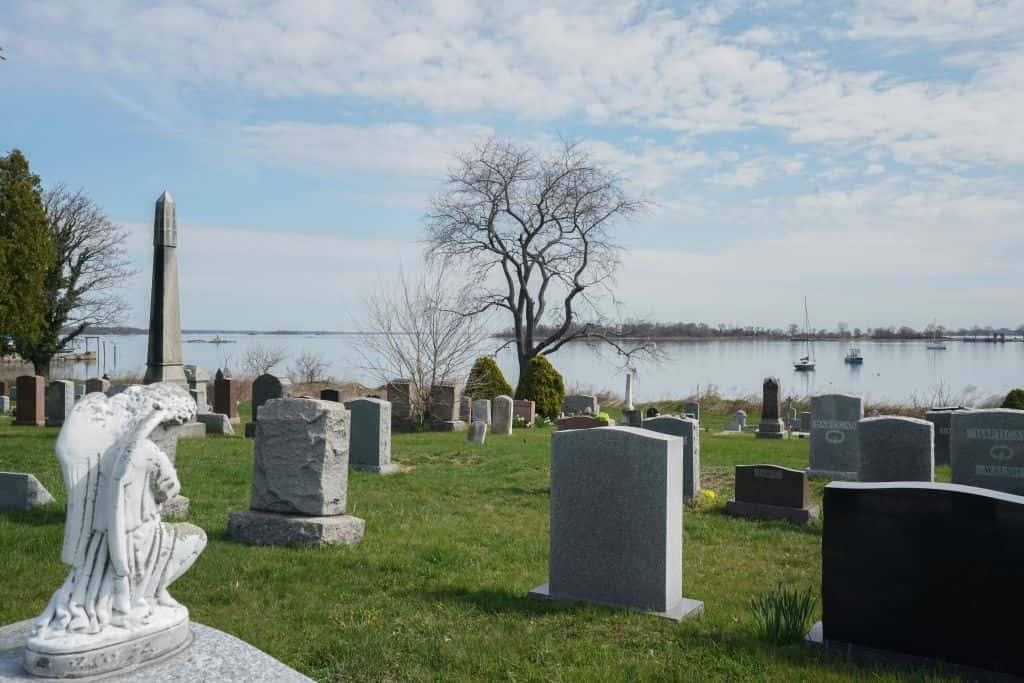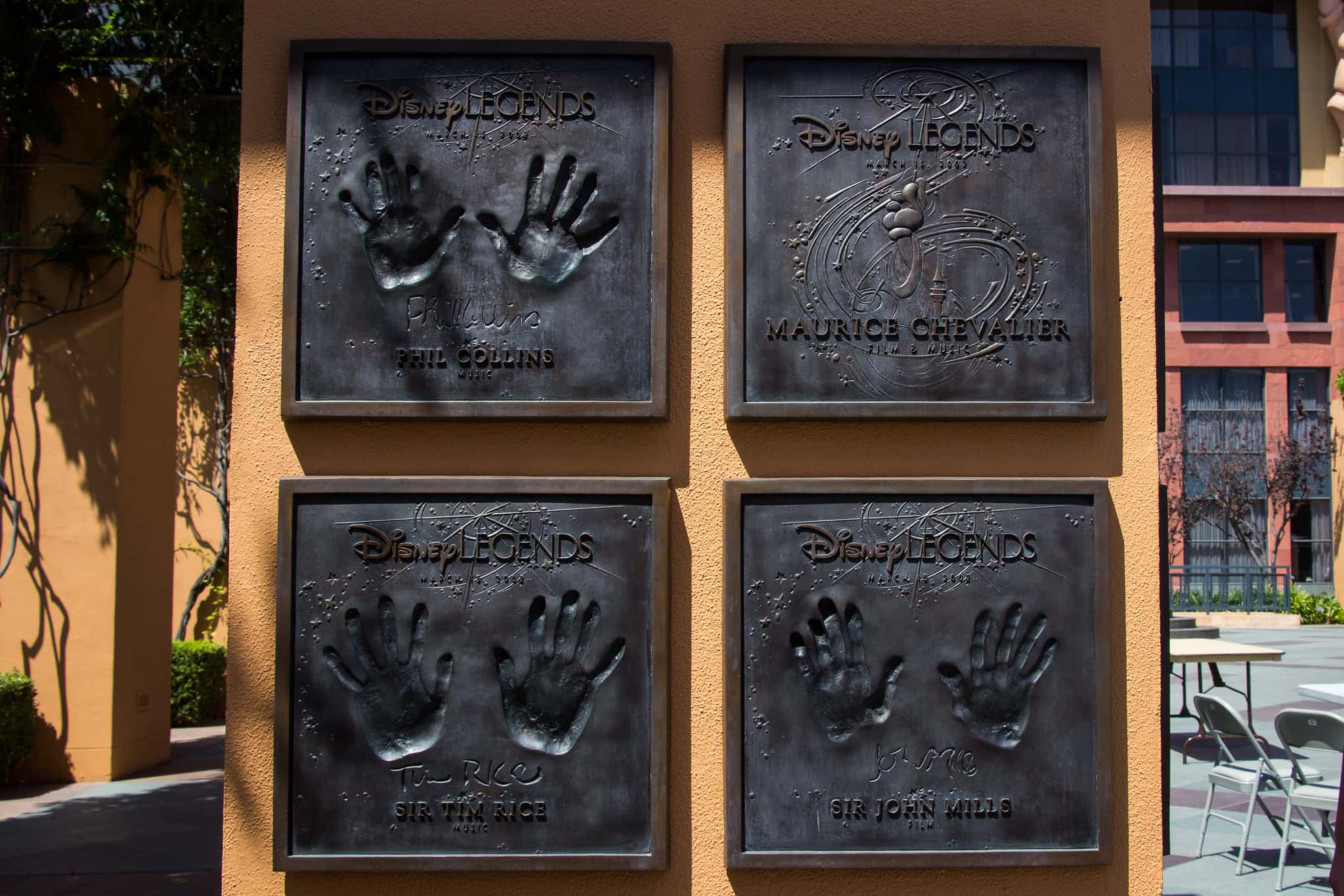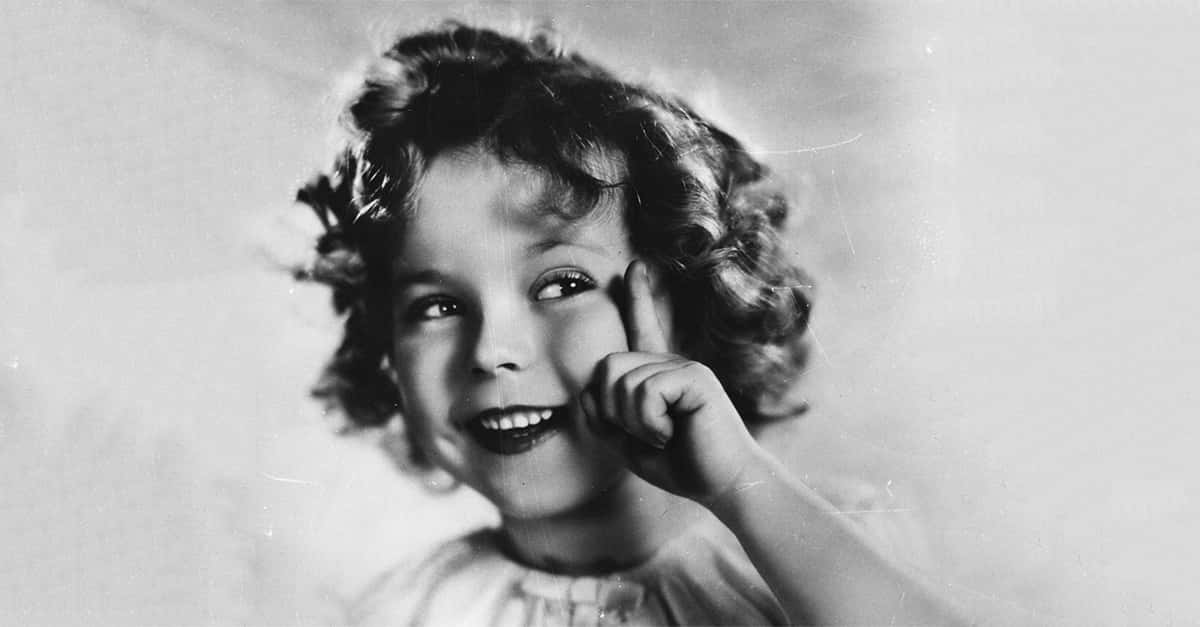While Disney likes to believe it has a squeaky-clean image, one look at Bobby Driscoll will tell you that things are never that simple. The story of this child actor, who starred in films like Song of the South and Peter Pan, is a heart-wrenching one. After Disney turned its back on him, the budding actor was left to fend for himself, and it led to his early and tragic end.
1. He Was A Normal Kid
Bobby Driscoll was born Robert Cletus Driscoll on March 3, 1937. By all accounts, he was your average little kid living in Cedar Rapids, Iowa. His parents had normal, respectable jobs. Nothing about his early childhood indicated a future career with Walt Disney. In fact, Driscoll stumbled into acting purely by chance…and it was all thanks to a fateful encounter.
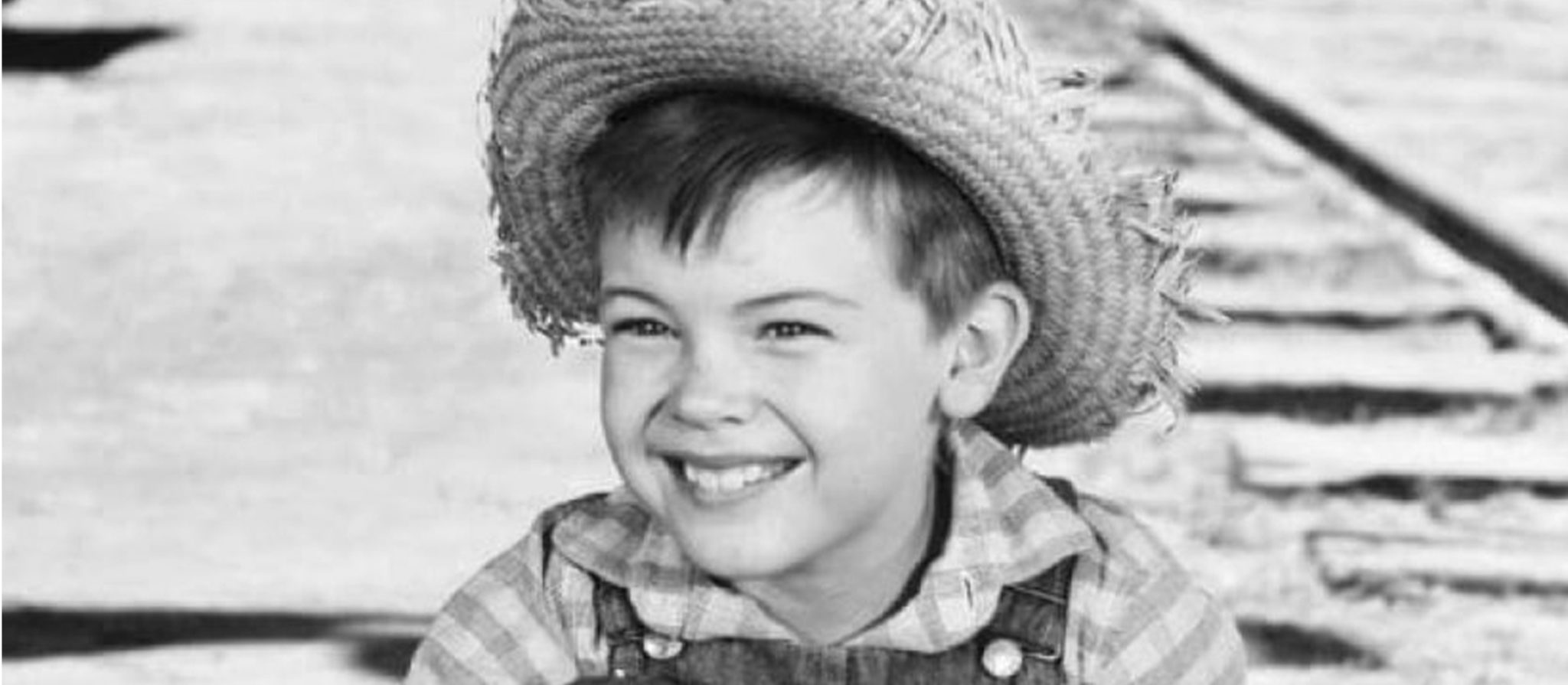
2. His Career Started Accidentally
Five-year-old Driscoll was getting a trim when the barber remarked to his parents that Driscoll "should be in the movies". The barber then connected them to his son, who was an actor himself. After taking one look at Driscoll’s adorable little freckled face, the barber’s son got Driscoll an acting agent. Just like that, precocious little Driscoll took his first steps toward a whole new life—but his road to stardom was not going to be an easy one.
3. He Had A Rough Start
Driscoll’s new acting agent put out the feelers for roles that suited little Driscoll, and soon found the perfect part for him in an upcoming MGM Studios film called Lost Angels. The part for Driscoll was a tiny one—he would only be on screen for a grand total of two minutes—but the competition was fierce. In fact, 40 other applicants wanted the role!
Driscoll needed to stand out to get the part, so he ended up doing something that completely won the director over.
4. He Amazed The Director
What Driscoll did was simple, but revealed a curiosity for the world around him which deeply impressed the director for Lost Angels. While on a tour on the studio lot, Driscoll noticed a mock-up ship and curiously asked where the water was. Driscoll’s desire to learn dazzled the director, who ended up choosing Driscoll over the other 40 applicants.
Other studios quickly saw Driscoll’s potential too, and the boy soon had more roles than he knew what to do with.
5. He Had A Winning Look
In 1944, 20th Century Fox offered Driscoll a role in their WWII drama, The Fighting Sullivans. He portrayed a young version of Al Sullivan, one of five close-knit brothers growing up in Iowa during the dark days of the Great Depression. Audiences warmly received Driscoll and his "pert nose and freckled face," leading to even more film roles for the seven-year-old actor. But that was only the tip of the iceberg.
 The Fighting Sullivans (1944), 20th Century Fox
The Fighting Sullivans (1944), 20th Century Fox
6. He Had A Talent For Acting
From 1944 to 1946, Driscoll found work in films that needed a cute, gifted little boy. He portrayed a boy that could whistle while standing on his head in Sunday Dinner for a Soldier, acted across Richard Arlen as his kid brother in The Big Bonanza, and portrayed Percy Maxim—a trouble-making child—in So Goes My Love. While those roles got Driscoll’s acting career rolling, it was his next role that took the little boy’s career to the next level.
7. He Fell In With The House Of Mouse
After three years of taking on minor acting roles, Driscoll got the chance of a lifetime when he caught the eye of the one and only Walt Disney. Disney placed young Driscoll and an even younger Luana Patten under contract, making Driscoll one of the first actors to ever be placed under a contract to the House of Mouse. Disney had big plans for Driscoll too.
The young actor’s days of taking on small movie roles were officially over—but this new life would eventually lead him down a dark and dangerous path.
8. He Couldn’t Fail
The first Disney film that Driscoll ever acted in was Song of the South in 1946, in which Driscoll took on the starring role as Johnny. A lot of pressure was on Driscoll to perform. At the time, Disney’s finances were in shambles thanks to WWII and desperately needed the film to do well. Needless to say, Driscoll could not afford to fail.
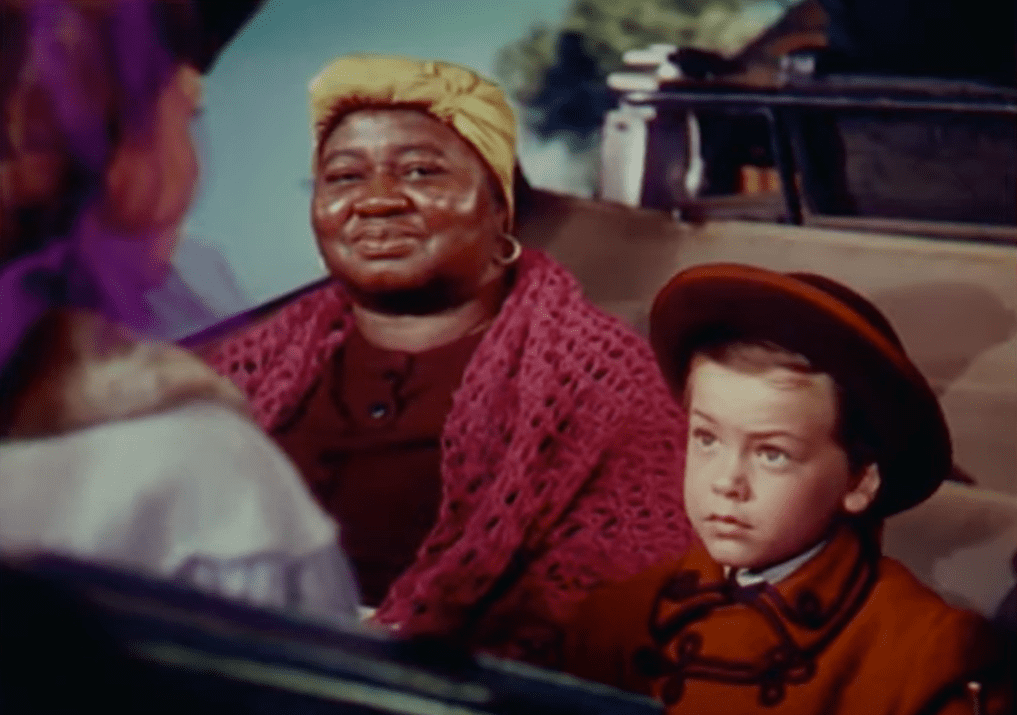 Song of the South (1946), Walt Disney Productions
Song of the South (1946), Walt Disney Productions
9. He Saved Disney Studios
While the film received mixed critical reactions and was rather controversial upon release, Song of the South netted Walt Disney $226,000, which is the equivalent of over $3 million in today’s dollars. Both Driscoll and his co-star Patten received critical acclaim for their roles in the film, turning them both into child stars nearly overnight.
From there, Driscoll quickly became one of Disney’s biggest money-makers. But this was only the beginning.

History's most fascinating stories and darkest secrets, delivered to your inbox daily.
10. He Became The Darling Of Disney
Following Driscoll’s runaway success in Song of the South, Disney immediately ordered for production on So Dear to My Heart to begin. While So Dear to My Heart didn’t put quite as much pressure on Driscoll to perform well, the plot of the film closely mirrored Walt Disney’s childhood, giving the film—and Driscoll’s role as young Jeremiah—a special meaning to Walt.
Disney put a lot of faith into Driscoll for the film, and it definitely paid off.
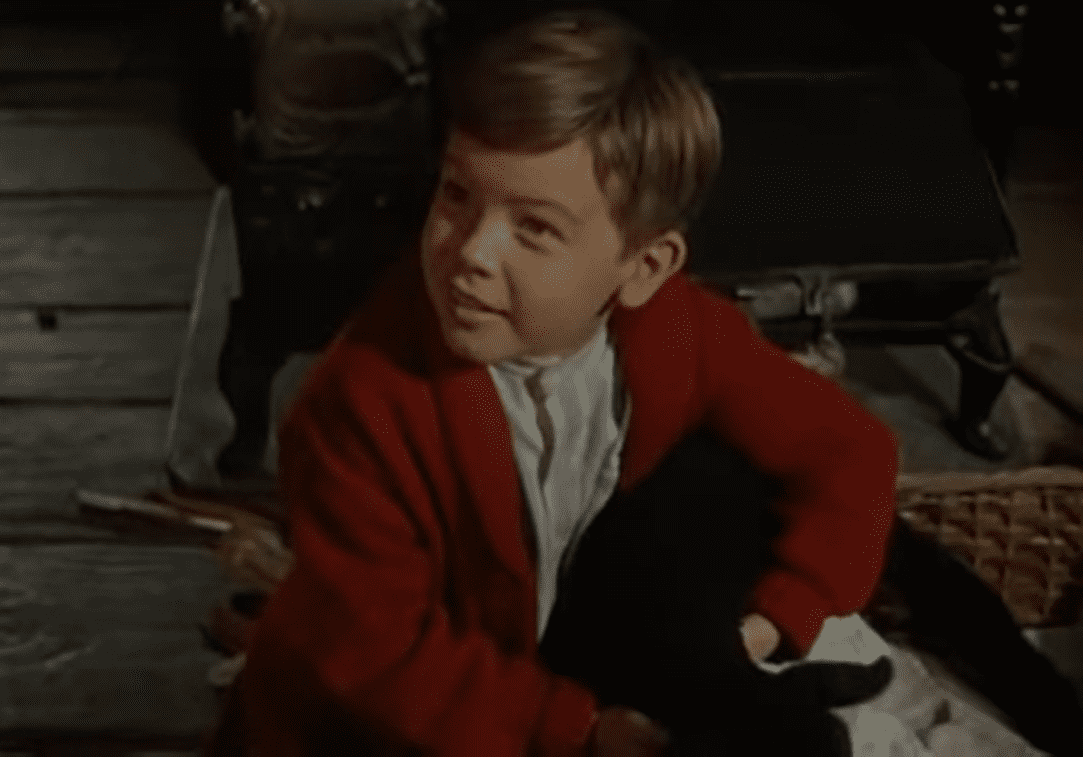 So Dear to My Heart (1948), Walt Disney Productions
So Dear to My Heart (1948), Walt Disney Productions
11. He Impressed The Right People
You see, So Dear to My Heart was a joint venture between Walt Disney and RKO Pictures. During production, the big wigs of RKO pictures were so impressed by Driscoll’s talent that they borrowed him for two vastly different films. The first film they needed Driscoll for was If You Knew Susie, a comedy musical that was right up Driscoll’s alley. The other film RKO had in mind for Driscoll, however, presented a whole new challenge for the child actor.
 If You Knew Susie (1948), RKO Pictures
If You Knew Susie (1948), RKO Pictures
12. He Took On A Dark Role
The other film that Driscoll made with RKO was The Window, a black-and-white suspense film noir. In the film, Driscoll portrayed Tommy Woodry, a boy that witnesses a murder, only to have no one believe him due to his reputation as a liar. The part was a far cry from Driscoll’s usual roles—there was no singing, wise-cracking, or cartoon animals involved.
And despite Driscoll’s acting talents, not everyone believed in Driscoll’s star power.
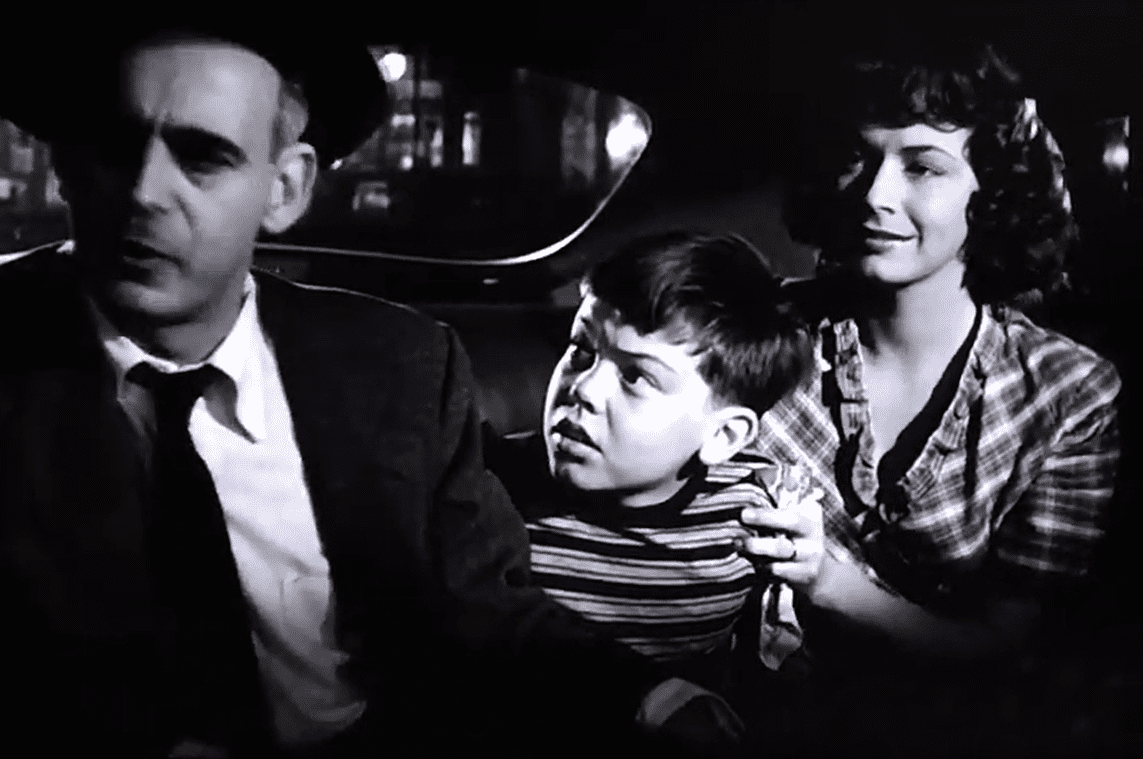 The Window (1949), RKO Pictures
The Window (1949), RKO Pictures
13. He Made A Terrible Enemy
After filming wrapped up for The Window, Driscoll’s career hit a major snag. Howard Hughes, an American investor that bought out RKO, thought the film was "unworthy of release". To make things worse, he completely dismissed Driscoll, and thought of the young boy as "not much of an actor". As a result, Driscoll’s film wasn’t released until the following year, in May of 1949.
Hughes probably didn’t expect much of a reaction, but he couldn’t have been more wrong.
14. Critics Loved Him
When The Window hit theaters, it—and more importantly, Driscoll’s performance—was a hit with audiences. The New York Times credited the film’s success wholly to Driscoll’s performance, stating that "The Window is Bobby Driscoll’s picture, make no mistake about it". At just ten years old, Driscoll proved to the world that he had what it took to be an exceptional actor, and it led to one of the biggest highlights of his career.
15. They Recognized His Talents
In 1950, Driscoll—at just 13 years old—received a very special Academy Award that recognized his work in So Dear to My Heart and The Window. The award Driscoll received was the Juvenile Academy Award, which is only awarded at the discretion of the Academy’s Board of Governors. The award made Driscoll even more valuable in the eyes of Uncle Walt, and it led to Driscoll’s next big Disney hit.
16. He Went On An Adventure
In 1950, Disney cast Driscoll as Jim Hawkins in Treasure Island, the studio’s first all live-action film. Not only did it give Driscoll another chance at a starring role, but Disney planned on filming in the United Kingdom. It must’ve felt like one huge adventure for Driscoll, but a huge issue ended Driscoll’s journey almost as soon as it began.
 Treasure Island (1950), Walt Disney Productions
Treasure Island (1950), Walt Disney Productions
17. He Got Into Major Trouble
During the middle of production, authorities discovered that Driscoll did not have a valid British work permit. Both Driscoll’s family and Disney received hefty fines, and they ordered Driscoll out of the country. This put Driscoll and the entire production in a sticky situation. There was simply no way Disney could complete Treasure Island without Driscoll…Or so it seemed.
18. He Saved The Production
The authorities in the United Kingdom allowed Driscoll six weeks to prepare an appeal. Instead of doing that, however, Driscoll took the sneaky route: He used the six-week buffer he had to hastily film all his close-ups. At the end of his six weeks, the authorities booted Driscoll and his family out of the country, and Disney filmed the rest of Driscoll’s scenes with a stand-in.
It certainly wasn’t the best experience Driscoll had with a production, but it barely put a dent in Driscoll’s success.
 Treasure Island (1950), Walt Disney Productions
Treasure Island (1950), Walt Disney Productions
19. He Became A Child Star
Despite the obstacles presented to Driscoll during production, Treasure Island was an international smash hit. It was so popular that Driscoll reprised his role the following year for a radio adaption of the movie. On top of that, the head honchos at Disney planned more film projects involving Driscoll. The young boy had it all, but unfortunately, his snafu with the British authorities had a bigger impact on his career than Driscoll could’ve imagined.
20. His Career Slowed Down
Disney slated Driscoll for two more films: Tom Sawyer and Robin Hood. While Driscoll was the perfect age for the role of Tom Sawyer, court disputes over the Tom Sawyer story forced Disney to cancel the project altogether, leaving Driscoll high and dry. Driscoll still had Robin Hood to look forward to, at least…Right? Well, not exactly.
21. He Lost His Chance
Disney wanted to film Robin Hood in the United Kingdom, but Driscoll’s run-in with British immigration made it impossible for the young actor to work in the UK. As a result, Driscoll was unable to work on the two major pictures that Disney planned for him. Still, Walt Disney had a lot of affection for Driscoll and signed the boy on for a second contract regardless. This decision kept Driscoll’s career alive…for now.
22. He Kept Moving Forward
For the next two years, Driscoll continued to find work in film, television, and voice acting. He took on the double role of Danny/Josh Reed in When I Grow Up and made a brief guest appearance in Disney’s first televised Christmas show, One Hour in Wonderland. Driscoll even had the honor of voicing Goofy Jr. in two Disney cartoon shorts, Fathers are People and Father’s Lion. At the same time, Driscoll was working on another project—and it defined his entire career.
23. He Took On His Defining Role
Between May of 1949 to mid-1951, Driscoll was working on Disney’s animated version of Peter Pan. His role for the production was enormously important: not only did he voice the titular Peter, but he also served as the reference model for the film’s close-ups. Even more amazingly, Driscoll became the first male to portray Peter on film.
The film was incredibly received—but in an ironic twist, its success ended up being Driscoll’s downfall.
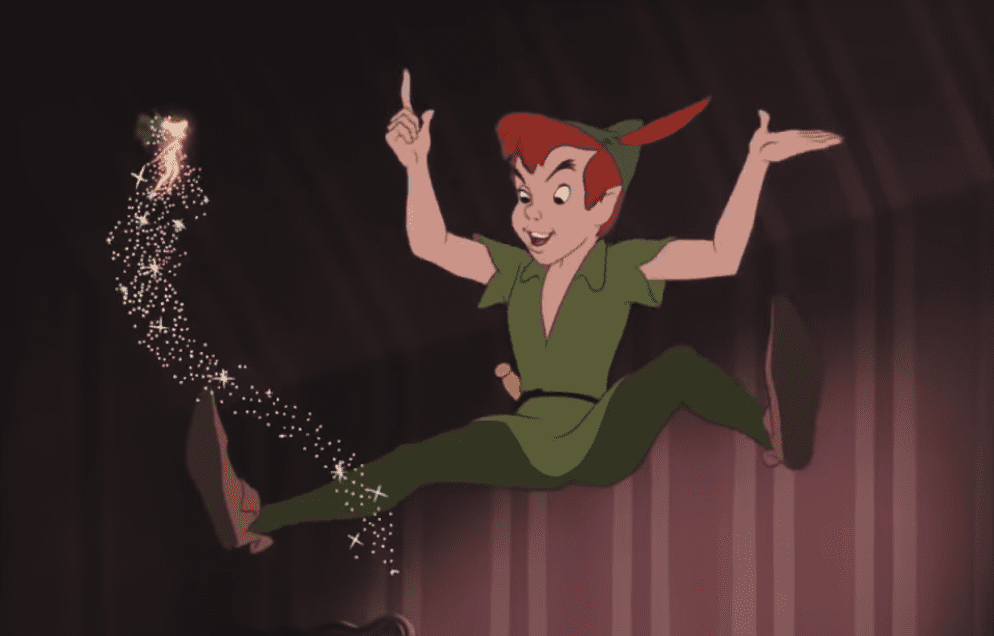 Peter Pan, The Walt Disney Company
Peter Pan, The Walt Disney Company
24. He Was Too Successful
Although Peter Pan was largely successful, Walt Disney himself didn’t like the film. He thought that Peter—and Driscoll, by extension—came off as cold and unlikeable in the movie. Ironically, critics of the film thought that Driscoll’s portrayal was a huge step up, as the original Peter Pan book portrayed the character as a complete sociopath.
Unfortunately for Driscoll, Walt’s affection seemed to run dry after the filming of Peter Pan, and it led to the young actor’s early decline.
25. They Stopped Caring About Him
In a project meeting held after the completion of Peter Pan, Walt Disney stated that Driscoll was better suited for roles as a young bully, and stopped giving Driscoll roles as the likeable protagonist. As a result, Driscoll received very little work from 1952 onwards. Disney still kept Driscoll on their payroll, but it was clear that they were losing interest in their once-favorite kid actor. Driscoll’s time with Disney was running out.
26. He Suffered A Humiliating Blow
Things came to a head when Driscoll hit puberty. With puberty came a severe case of acne, which—through no fault of his own—marred the boy’s flawless face. When Driscoll appeared on television, Disney Studios forced him to use heavy makeup to cover up his acne, which must've been humiliating for Driscoll. However, this wasn’t the end of the humiliation that Driscoll had to face.
27. He Hit The Curb
Remember Howard Hughes, the guy that initially dismissed Driscoll’s acting ability? As the years passed, Hughes’s disdain for Driscoll seemingly turned into downright hatred. You see, Hughes really had it out for child actors like Driscoll; he thought that kids like Driscoll were "incredibly annoying". As Driscoll’s acne grew worse, Hughes used his influence over Disney to get rid of Driscoll in the most mortifying fashion possible.
28. They Left Him High And Dry
One day in 1953, Driscoll drove up to the entrance of Disney Studios as usual, only to find his way blocked. The guards refused to let Driscoll enter, and informed him—rather abruptly and rudely—that he was no longer under the employ of Disney Studios. The news was absolutely devastating. After years of working for the studio, Disney dropped Driscoll like a hot coal, forcing the young man to find work elsewhere. For Driscoll, this was easier said than done.
29. Disney Overshadowed His Talent
After his dismissal, the now teenaged Driscoll looked to other Hollywood studios for work. In an incredibly sad twist, Driscoll’s work with Disney made it incredibly difficult for the young actor to find roles. Most still thought of Driscoll as "Disney’s kid actor," which made it nearly impossible for Driscoll to find work as a serious character actor. Outside of his career, Driscoll’s private life was going just as poorly.
30. He Didn’t Fit In
After Disney kicked Driscoll to the curb, his parents withdrew him from the Hollywood Professional School, an institution that served child actors. Instead, they sent Driscoll to West Los Angeles University High School. Driscoll’s past as a child actor made him a prime target for ridicule from the other students, resulting in his grades dropping. Driscoll wasn’t going to take that lying down, however.
31. He Tired To Move On
Still determined to become an actor, Driscoll left his parents’ home at 16. He made multiple trips to New York City to study acting, and even reportedly enrolled in UCLA and Stanford. Unfortunately, Driscoll could not escape the shadows of his past and ended up dropping out of both prestigious universities. With little choice, Driscoll tried to fit in with the other kids at the West Los Angeles University High School, and the results were utterly heartbreaking.
32. He Acquired A Tragic Habit
According to Driscoll, "The other kids didn’t accept me…When they rejected me, I fought back, became belligerent and cocky—and was afraid all the time". Alone and friendless, Driscoll turned to illicit substances at the age of 17. Thanks to the money he saved up while working for Disney, Driscoll had the cash to experiment with a wide variety of substances, and his experiments led him down a dark path with no return.
33. He Made Small Gains
Eventually, Driscoll convinced his parents to re-enroll him to the Hollywood Professional School, where his grades improved. In May of 1955, Driscoll graduated and even found work in television. He appeared in a variety of anthology and drama series, such as Dragnet (a crime drama) and Medic (the OG medical drama). Sadly, these small successes were not enough to turn Driscoll’s life around—and for one devastating reason.
34. Addiction Destroyed Him
After a few years of experimenting with illicit substances, Driscoll became a full-blown addict. Every cent he made went straight to fueling his addiction. Soon, Driscoll began butting heads with the law. In 1956, the authorities took him in and charged him with possession of marijuana. Although the charges were dismissed, this event marked the beginning of Driscoll’s many future encounters with the law.
35. He Married The Love Of His Life
Although Driscoll had a troubled life, he attempted to push forward. In December of 1956, Driscoll made the decision to elope with his longtime girlfriend, Marilyn Jean Rush. Driscoll and Rush eloped in Mexico, although both sets of parents objected to their union. Perhaps Driscoll hoped that Rush would change him for the better, but what actually happened was far, far worse.
36. He Changed For The Worse
A year after the couple eloped, they re-wed in an official ceremony in Los Angeles in March of 1957. The two had two daughters and one son. On the surface, this sounded like an enormously successful marriage, but for Driscoll, this wasn’t the case. According to him, his personality took a turn for the worse during his marriage, and his dwindling career soon followed suit.
37. He Changed His Name
In a last-ditch attempt to distance himself from his Disney days, Driscoll began using the name "Robert Driscoll" when looking for acting jobs. This strategy was only mildly successful. He managed to land two television parts in 1957, and even got a film role in The Party Crashers in 1958, but it was too little, too late. In 1960, Driscoll’s life fell apart all at once.
 The Party Crashers (1958), Paramount Pictures
The Party Crashers (1958), Paramount Pictures
38. His Life Came Crashing Down
As Driscoll’s personality deteriorated, his marriage suffered. Driscoll and his wife separated, then officially divorced in 1960. That same year, Driscoll got in trouble with the authorities once again when he hit a heckler that insulted him while he washed his girlfriend’s car. They charged him, but once again, the charges didn’t stick. Driscoll lucked out this time, but his luck ran out the following year.
39. He Repeatedly Got Into Trouble
Over the next year, Driscoll ran into trouble with the authorities again and again. They took him in for drug possession, battery, burglary, check kiting, and more. It was clear that Driscoll’s drug addiction was destroying his life, and in 1961, everything came to a head when the authorities finally sentenced him as a drug addict.
This was the final nail in the coffin for Driscoll’s life and career.
40. He Lost It All
The State of California sent Driscoll to the Narcotic Rehabilitation Center of the California Institution for Men in Chino, California. By early 1962, Driscoll’s prison sentence ended, but it utterly destroyed his chances of becoming an actor ever again. The stigma that his prison sentence left on him made it impossible for Driscoll to find acting jobs, leaving the young man bitter…But not completely hopeless.
41. He Tried To Start Over
For a short time, Driscoll did everything he could to rehabilitate his image. He briefly worked as a carpenter and cared for the young children he had with his ex-wife. Driscoll never forgot about his dream of being an actor, though. In 1965, a year after his parole expired, Driscoll made the decision to relocate to New York City. Driscoll planned on starting over, but life had other plans for him.
42. He Made An Unexpected Friend
In New York City, Driscoll attempted to revive his career through Broadway. He had the acting chops and the singing talent, but his Broadway career was largely unsuccessful. Instead, Driscoll found a place beside an extremely unlikely and eccentric individual: the artist Andy Warhol. Warhol welcomed Driscoll with open arms, but his reasons for doing so may have been sinister.
43. They Took Advantage Of Him
Driscoll found work as an artist in The Factory, Warhol’s New York City art studio. According to one Hollywood biographer, Warhol "loved having Bobby Driscoll as part of his scene". In particular, Warhol loved the idea of having a bitter, Hollywood ex-actor as a part of his crew. Whatever Warhol’s reasons were, Driscoll produced some outstanding pieces of art while working at The Factory, and for a short while, Driscoll’s life took a positive turn.
44. He Had A Surprising Gift
Critics praised Driscoll’s work, with some of his art even being temporarily displayed in Los Angeles in the Santa Monica Museum of Art. Driscoll even got a chance to act one last time in the movie Dirt, an experimental film directed by Piero Heliczer. Driscoll’s moment of peace was painfully brief. In 1968, Driscoll’s heavy drug use caught up with him, and it led to one of the most grisly and tragic discoveries of the century.
45. His End Was Tragic
On March 30, 1968, two boys playing in a deserted East Village apartment stumbled upon a gruesome discovery. What they found was the body of Bobby Driscoll in a cot, with two empty beer bottles nearby and surrounded by religious pamphlets. An examination revealed that Driscoll passed from heart failure directly related to his drug usage.
This was already sad enough, but it wasn’t even the most tragic fact about his end.
46. No One Knew Who He Was
The real tragedy of Bobby Driscoll was the fact that no one identified his body. The authorities showed photos of his body to people living in the neighborhood, but no one had any idea who he was. As a result, the city buried Driscoll’s unclaimed body in an unmarked pauper’s grave on Hart Island. It wasn’t until one year later that Driscoll’s family learned of his passing, and the results were agonizingly tragic.
47. They Searched For Him
In late 1969, one year after the discovery of Driscoll’s body, Driscoll’s mother attempted to find her son. Driscoll’s dad was nearing the end of his life, and Driscoll’s mom wanted to reunite father and son one last time. She reached out to Disney for help, which eventually led her to the NYPD. They managed to identify Driscoll through his fingerprints, which led them to Hart Island.
It took even longer for news of Driscoll’s passing to reach the public.
48. The Public Finally Took Notice
In 1972, Disney re-released Song of the South, which reignited public interest in Driscoll, the smiling little boy in the film that brought Disney back from the verge of bankruptcy. Reporters looking into Driscoll discovered the ghastly tale of Driscoll’s career and his end. News of Driscoll’s end finally went public, four years after tragedy took the young man’s life.
Unfortunate circumstances made it difficult to keep Driscoll’s memory alive, however.
49. His Final Resting Place Is A Mystery
First, the exact spot where the city buried Driscoll remains a mystery. Driscoll’s burial records, along with many others, were destroyed in a fire. All that is known is that Driscoll’s body is somewhere in the Northern part of the island, surrounded by deer, red raccoons, and a bird sanctuary. Driscoll’s legacy as an actor is even harder to keep alive.
50. They Forgot Him
Although Driscoll did much to bolster Disney during a time of crisis, he is still, to this day, not a part of Disney Legends, the Disney equivalent of a Hall of Fame. To make matters worse, Disney distanced itself from Song of the South, as well as Peter Pan to a lesser degree, both films in which Driscoll played a pivotal role. Sadly, the story of Bobby Driscoll does not end with "happily ever after".

